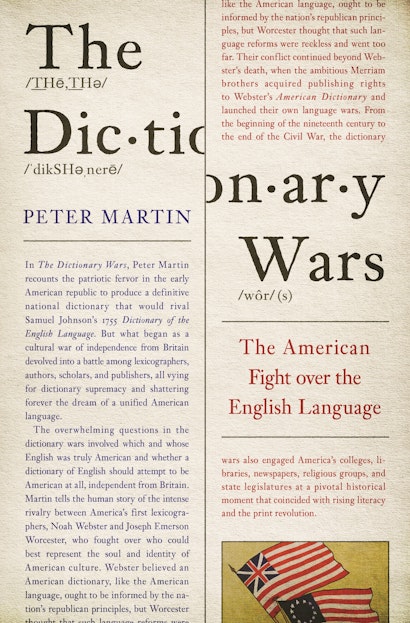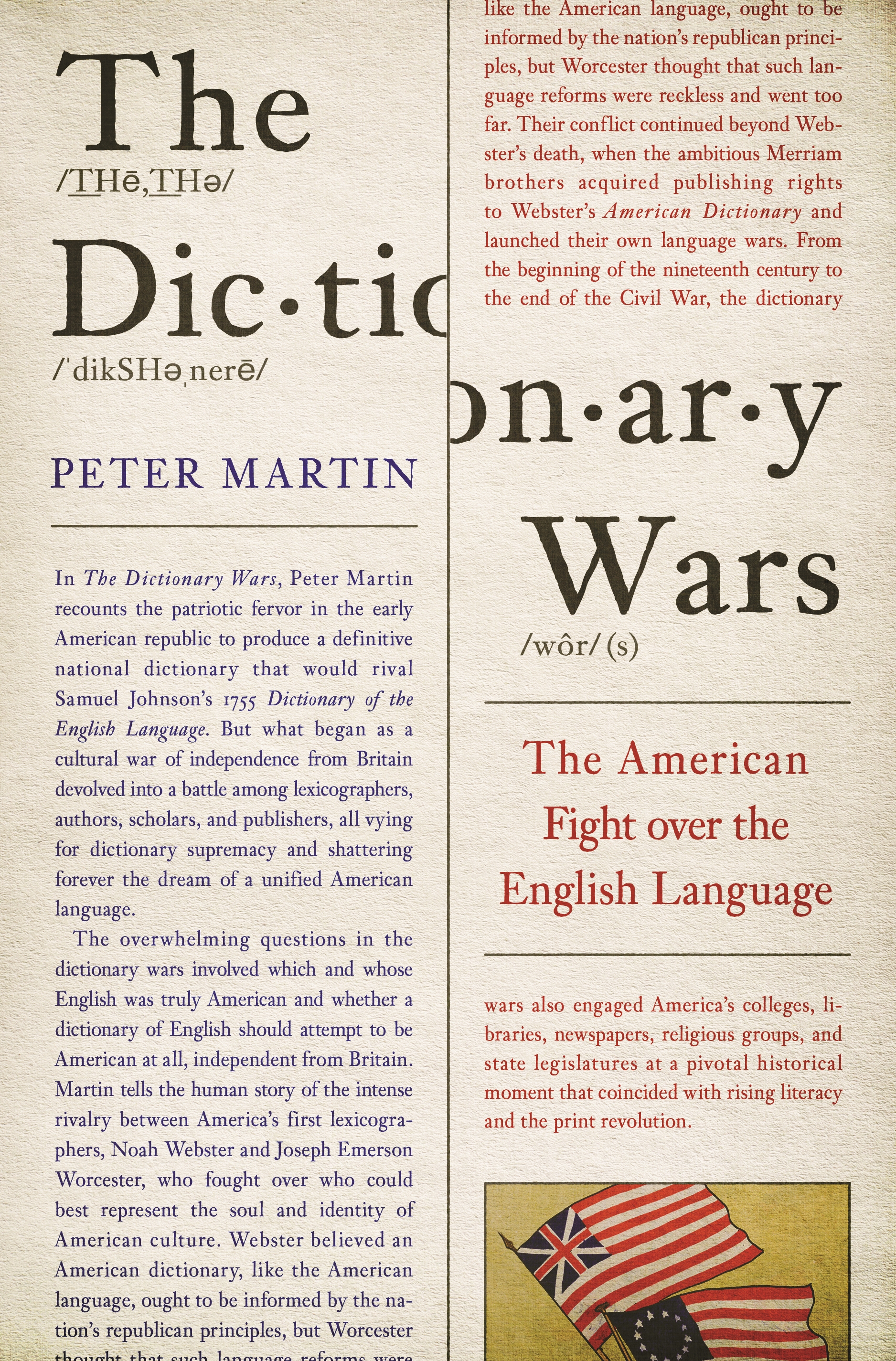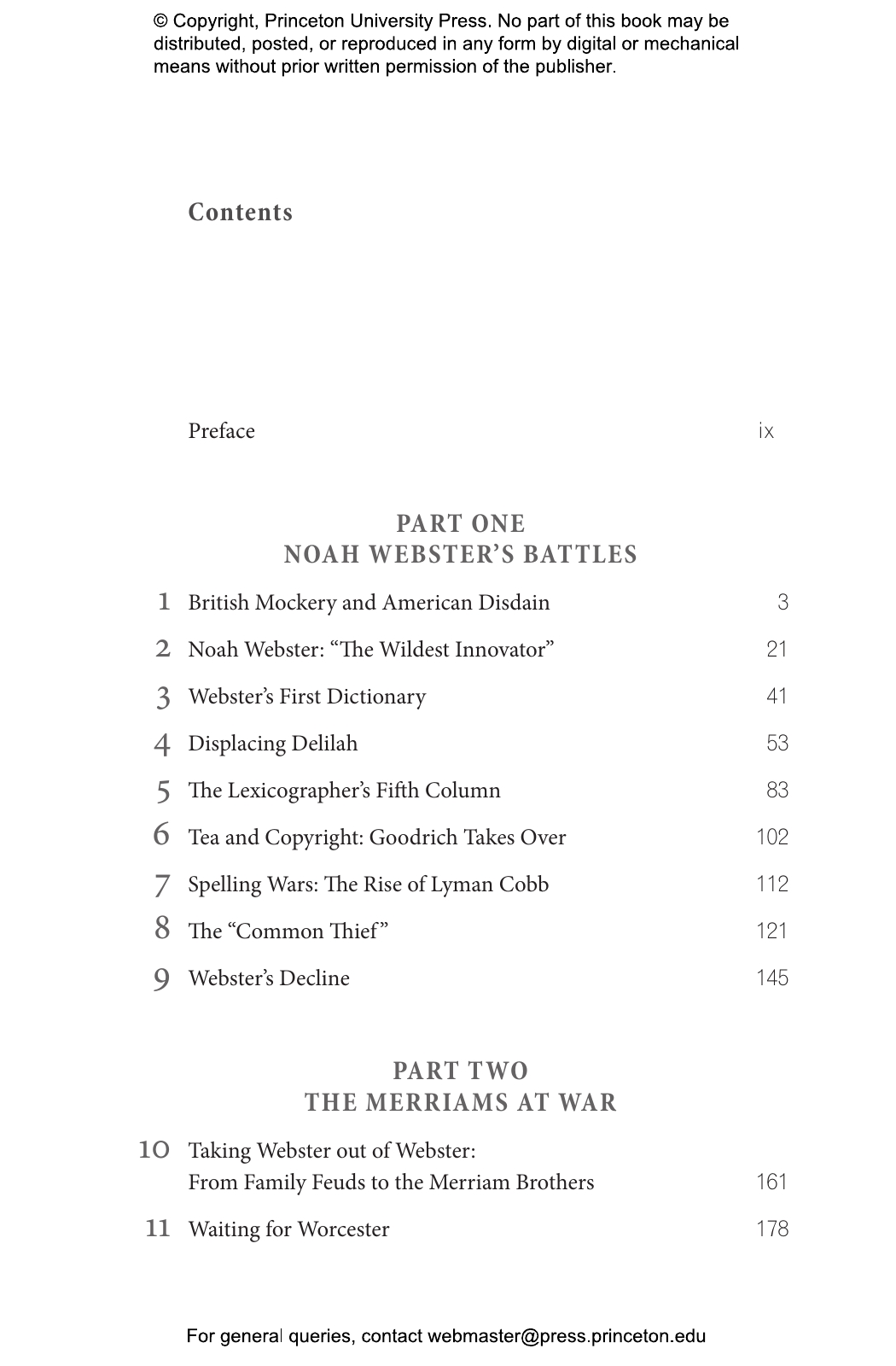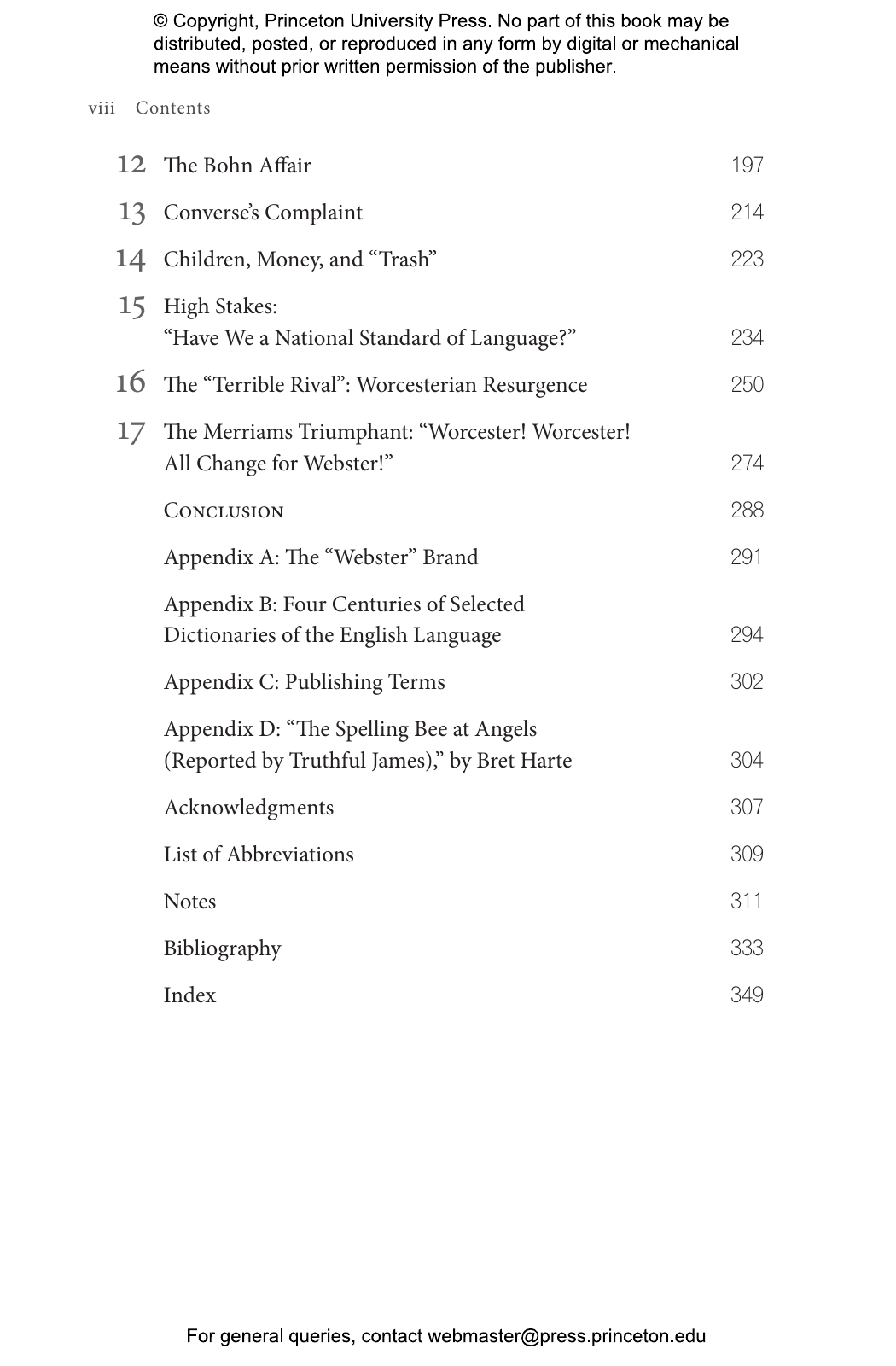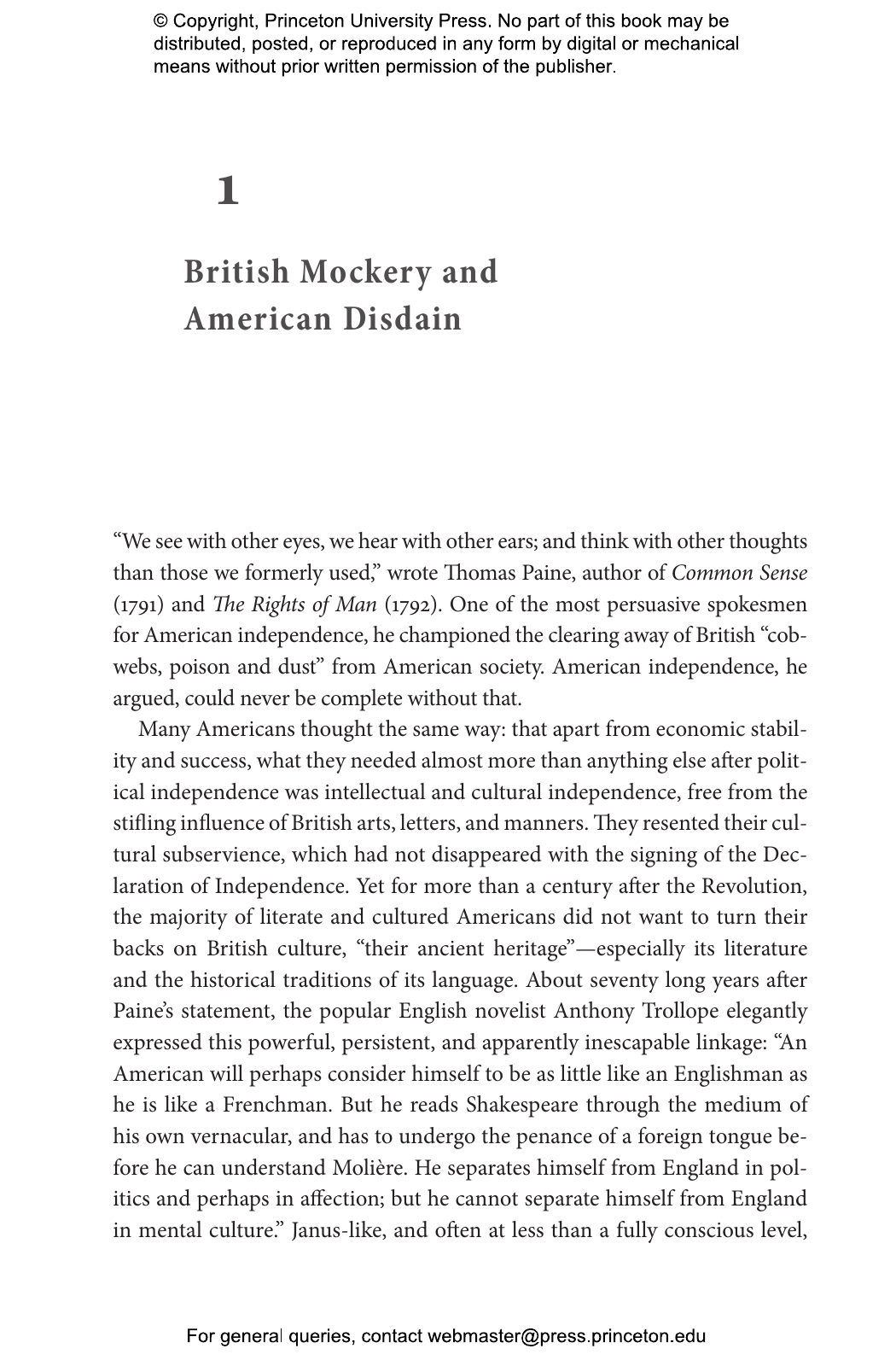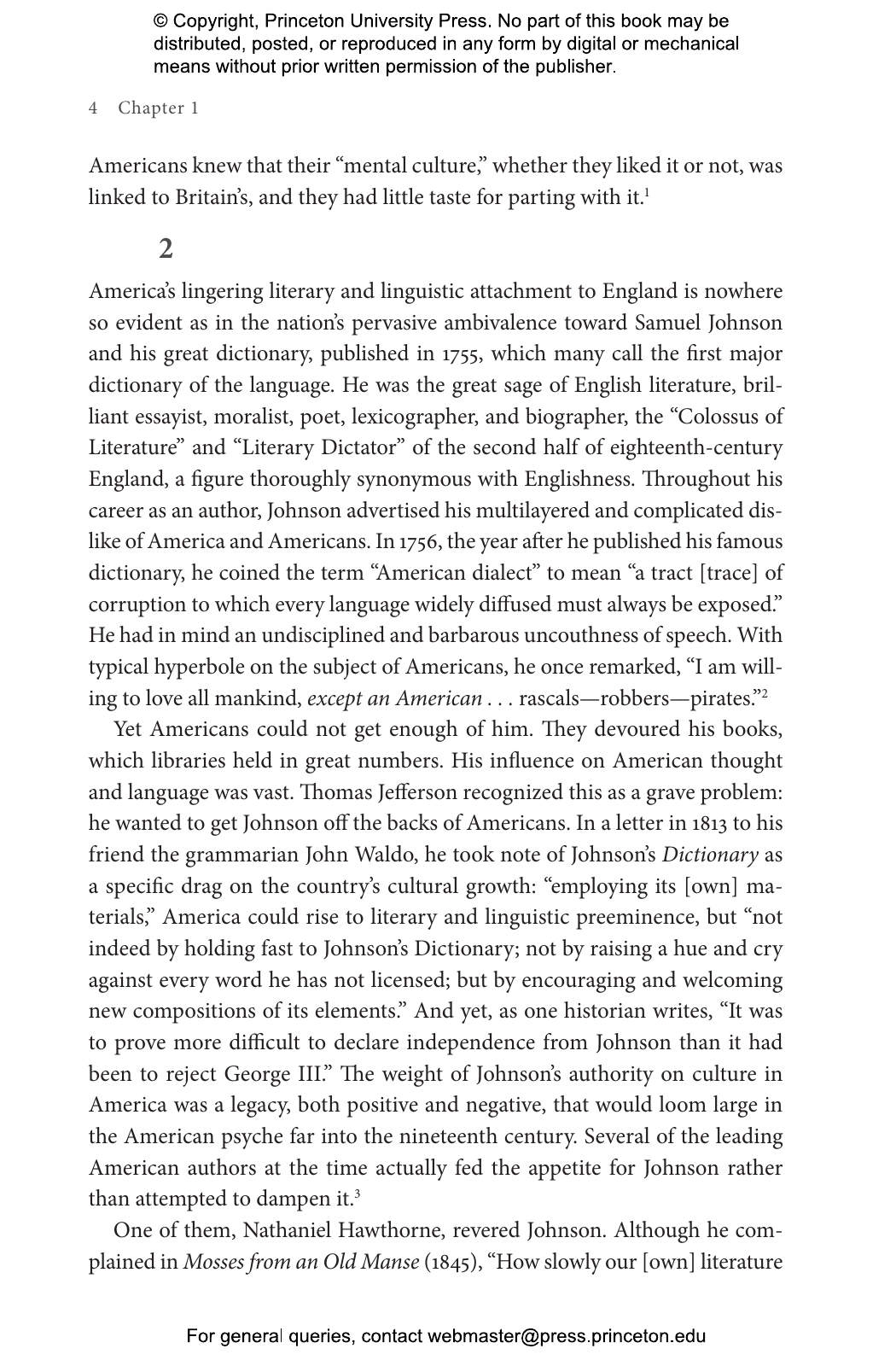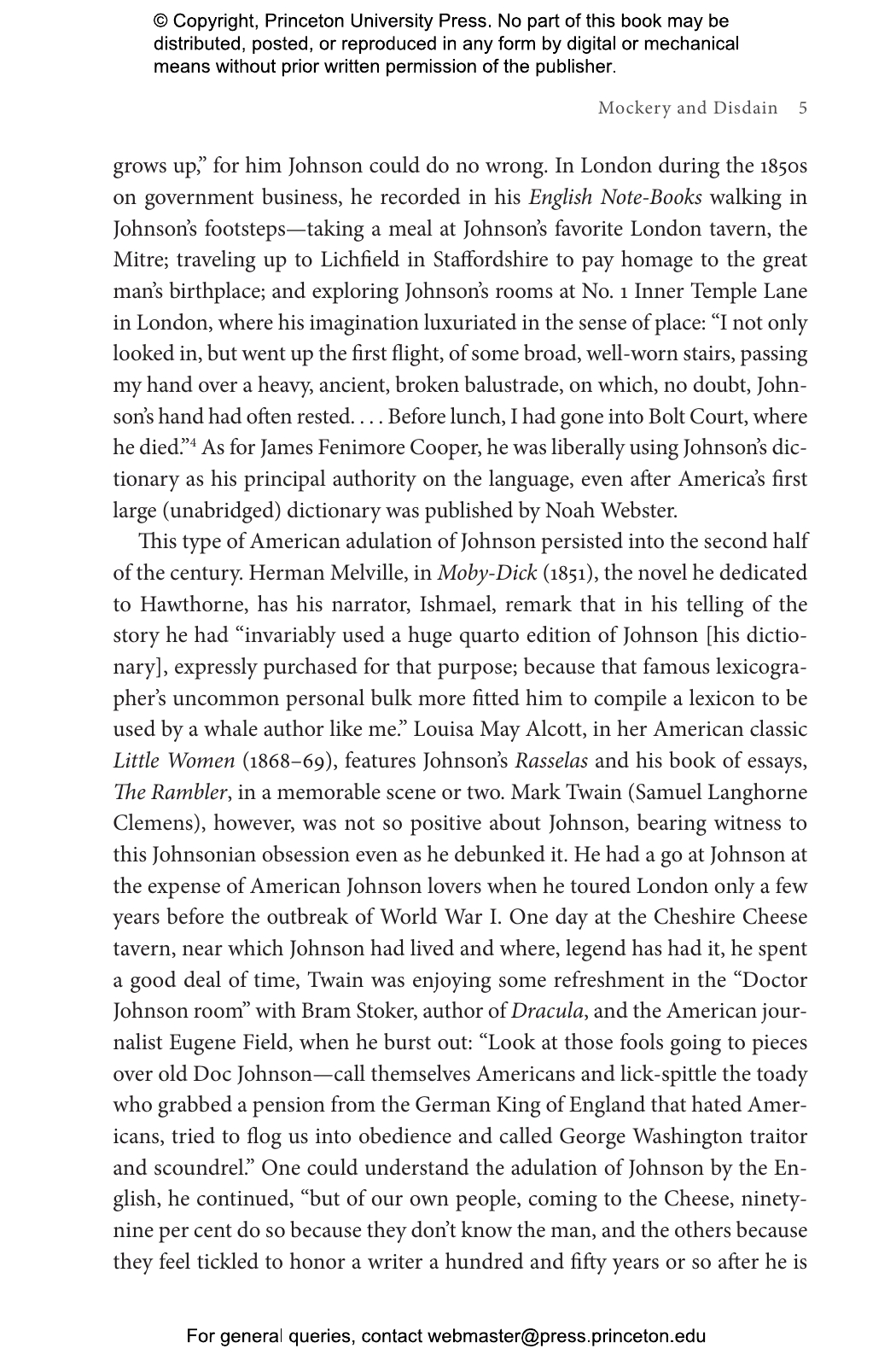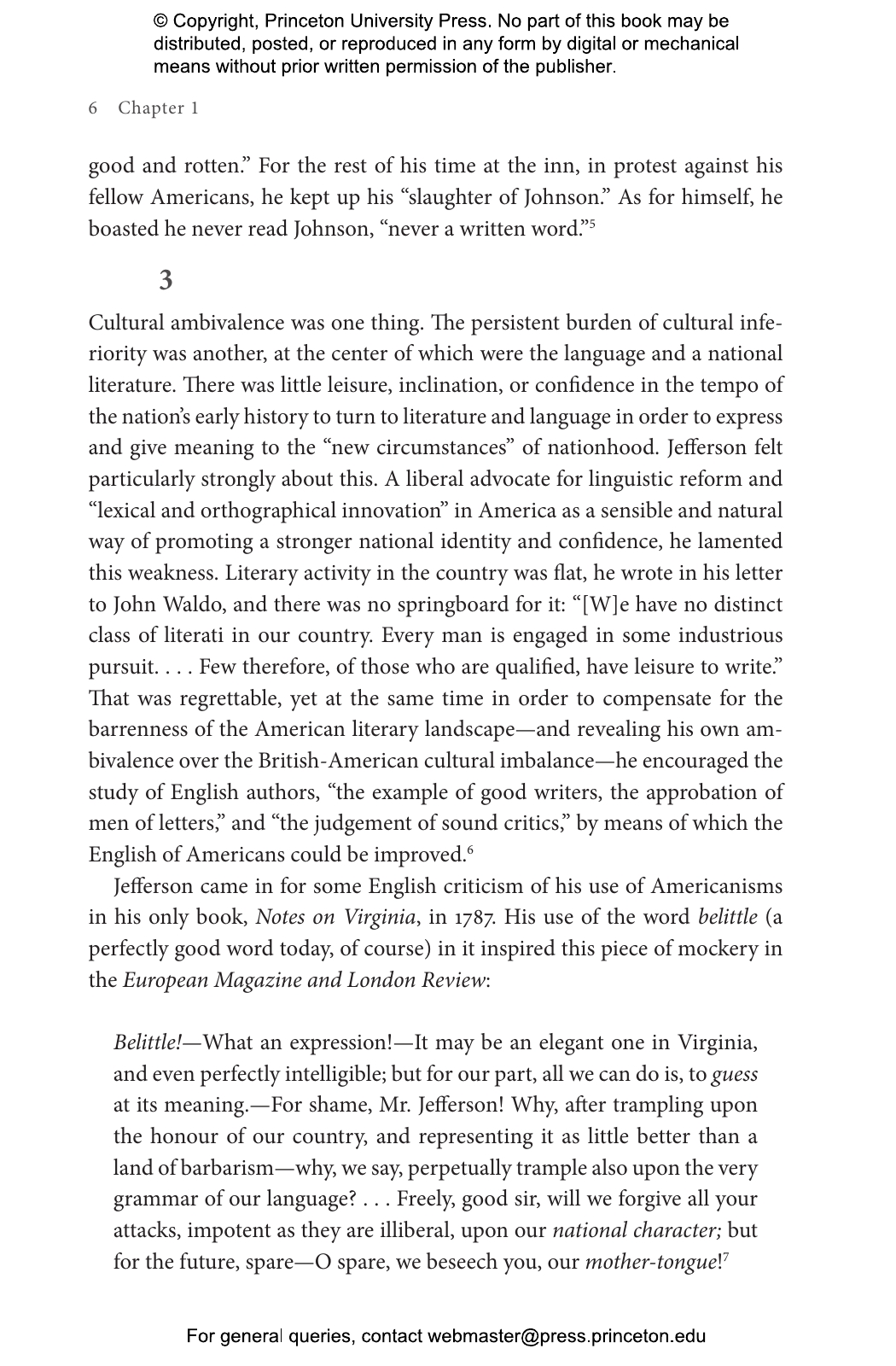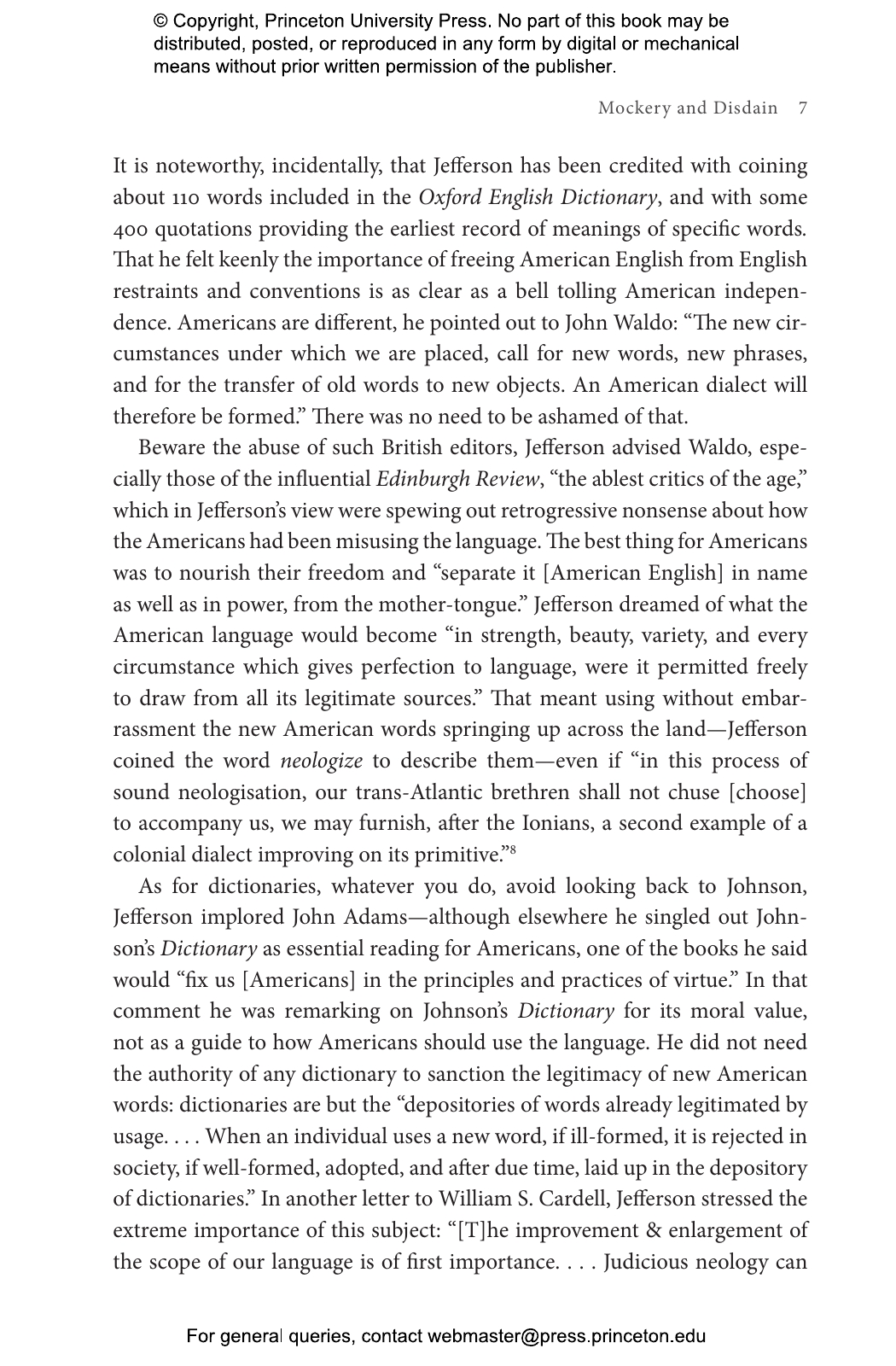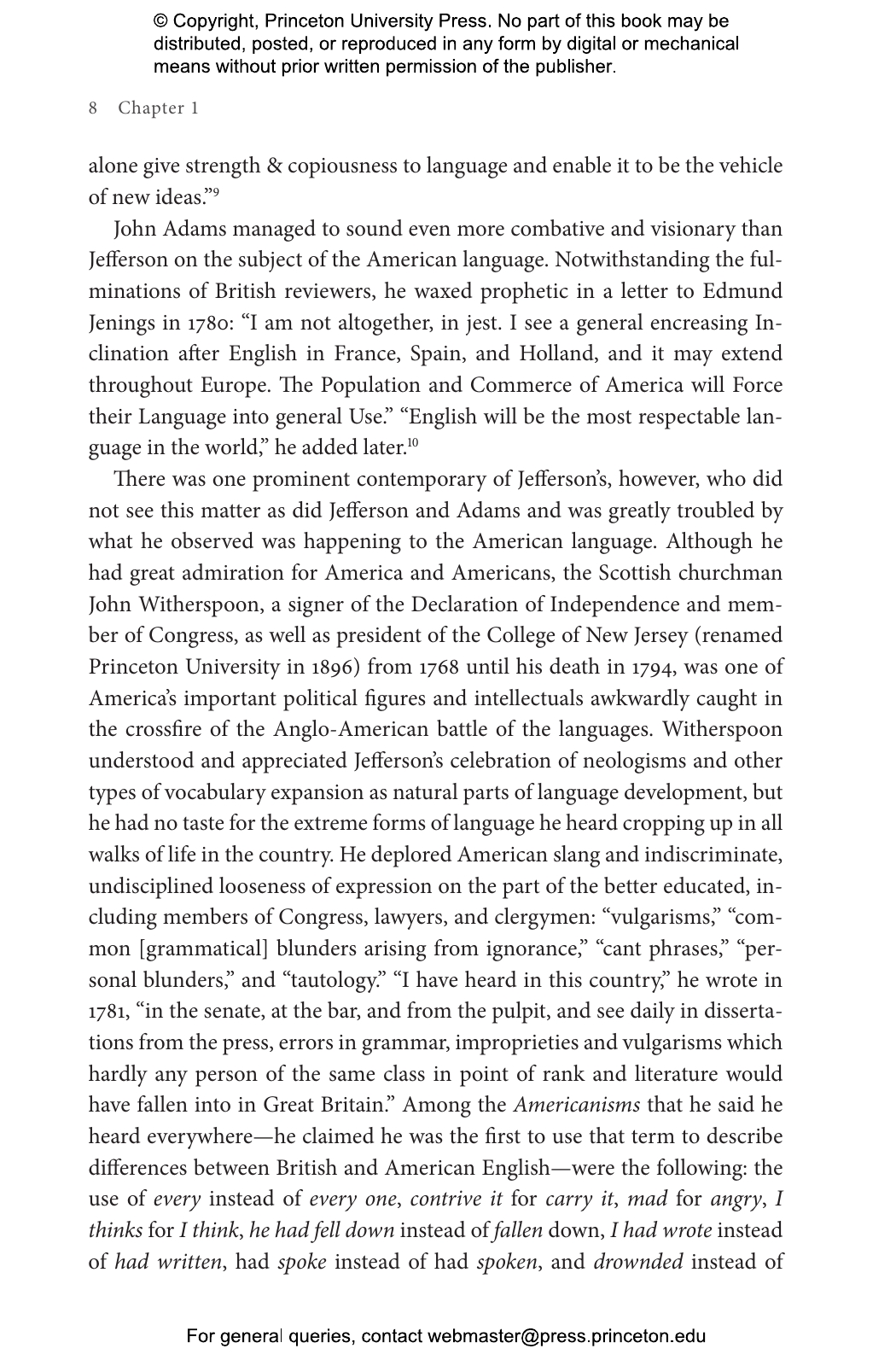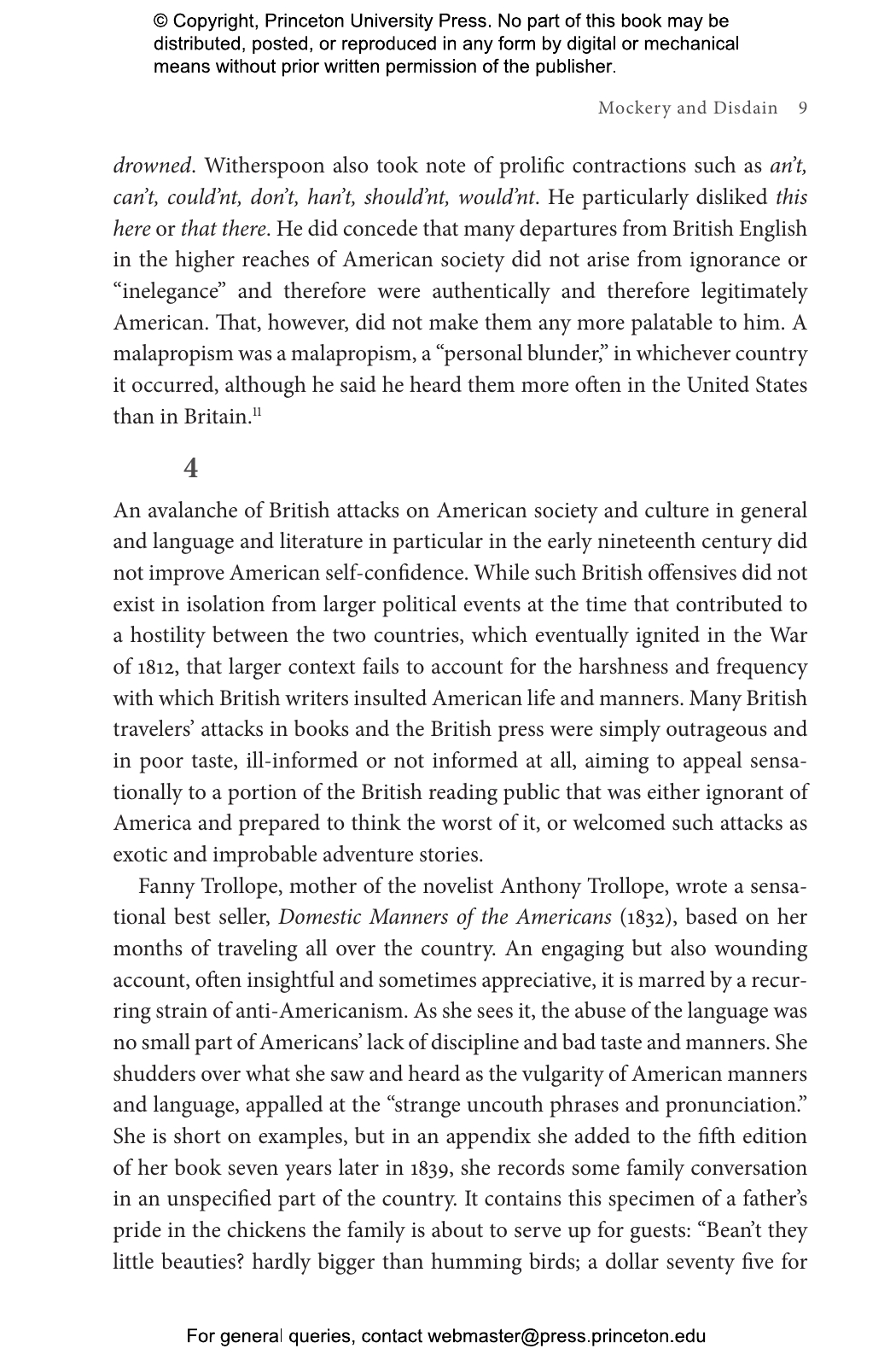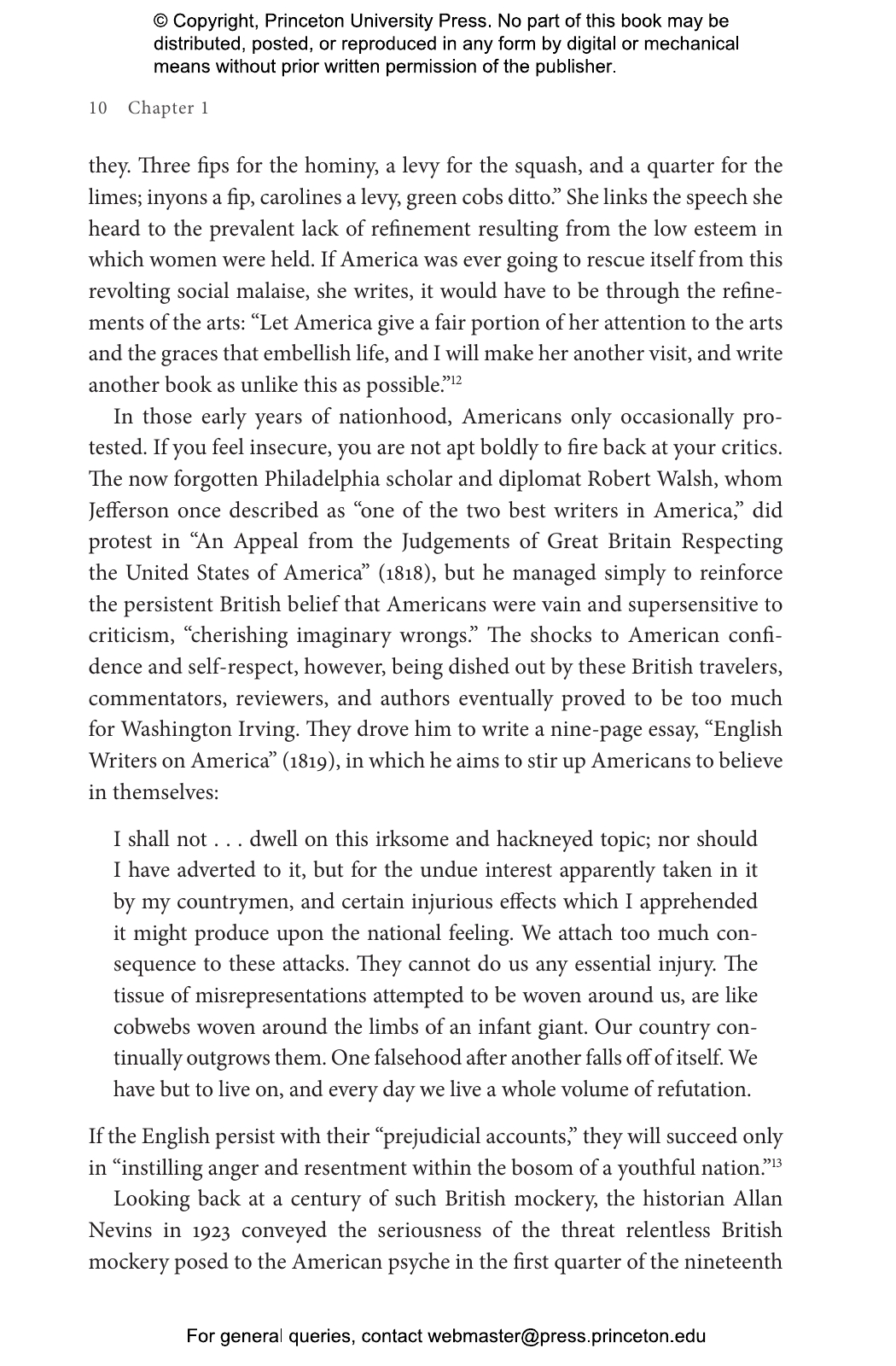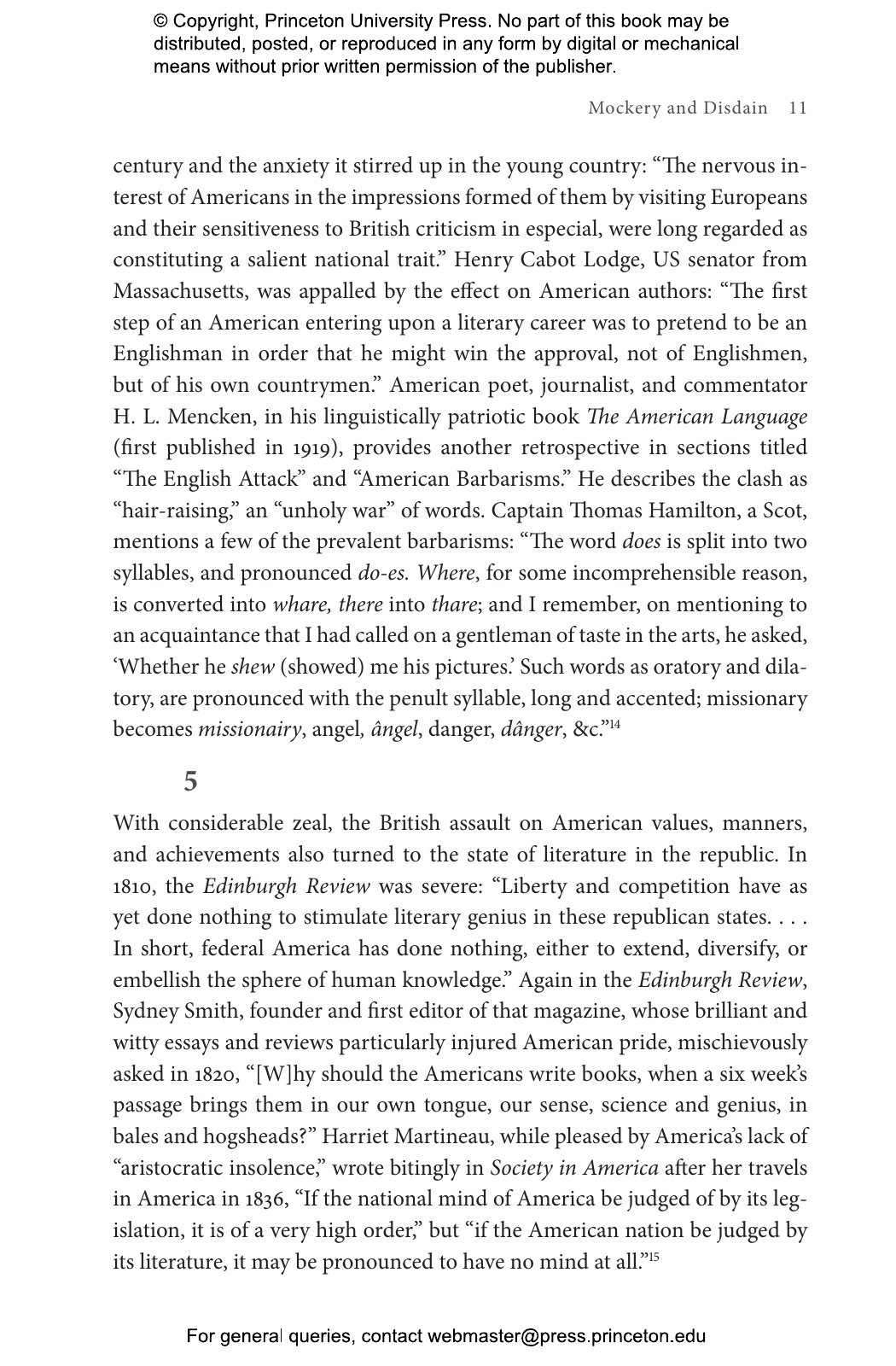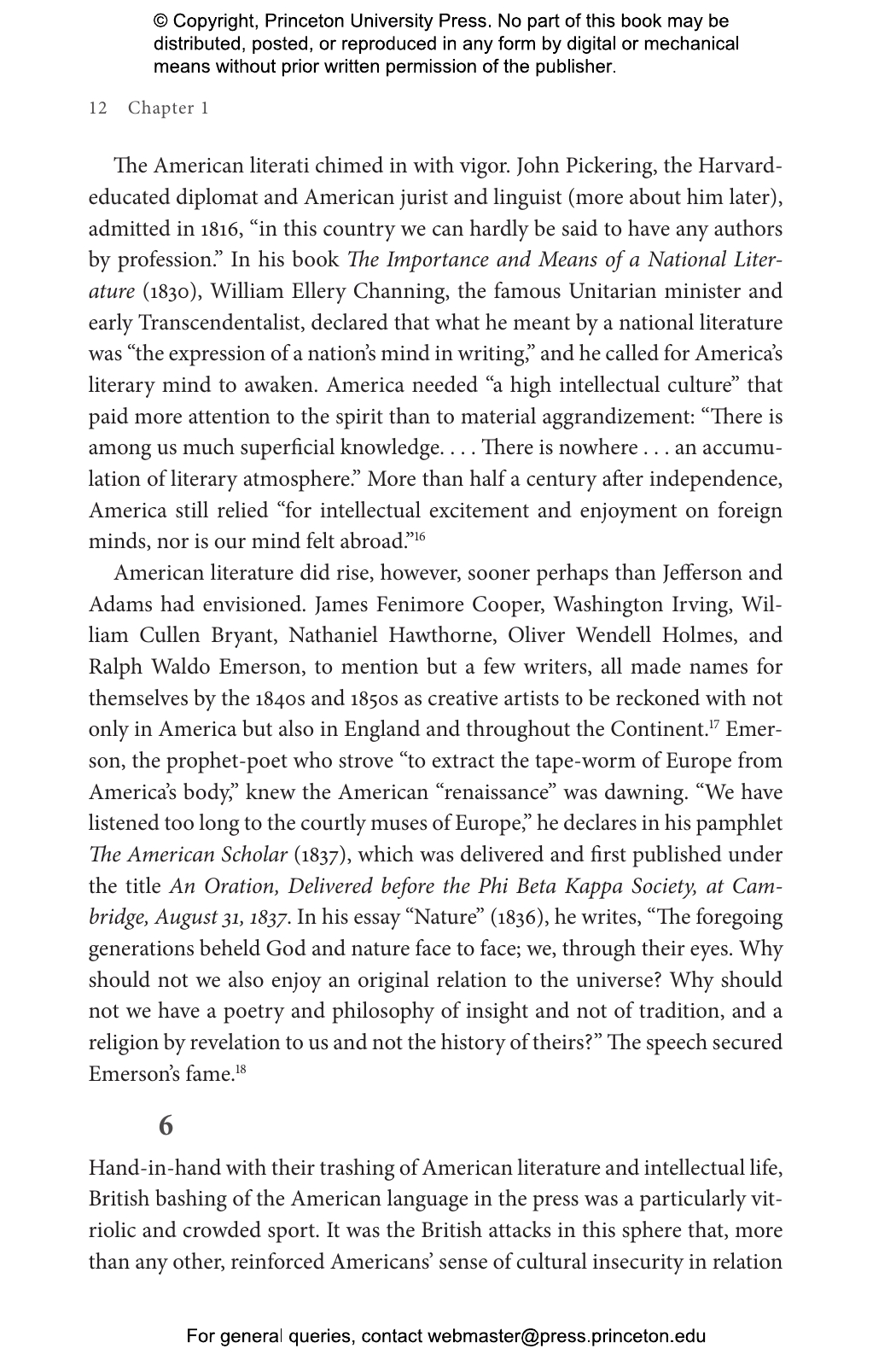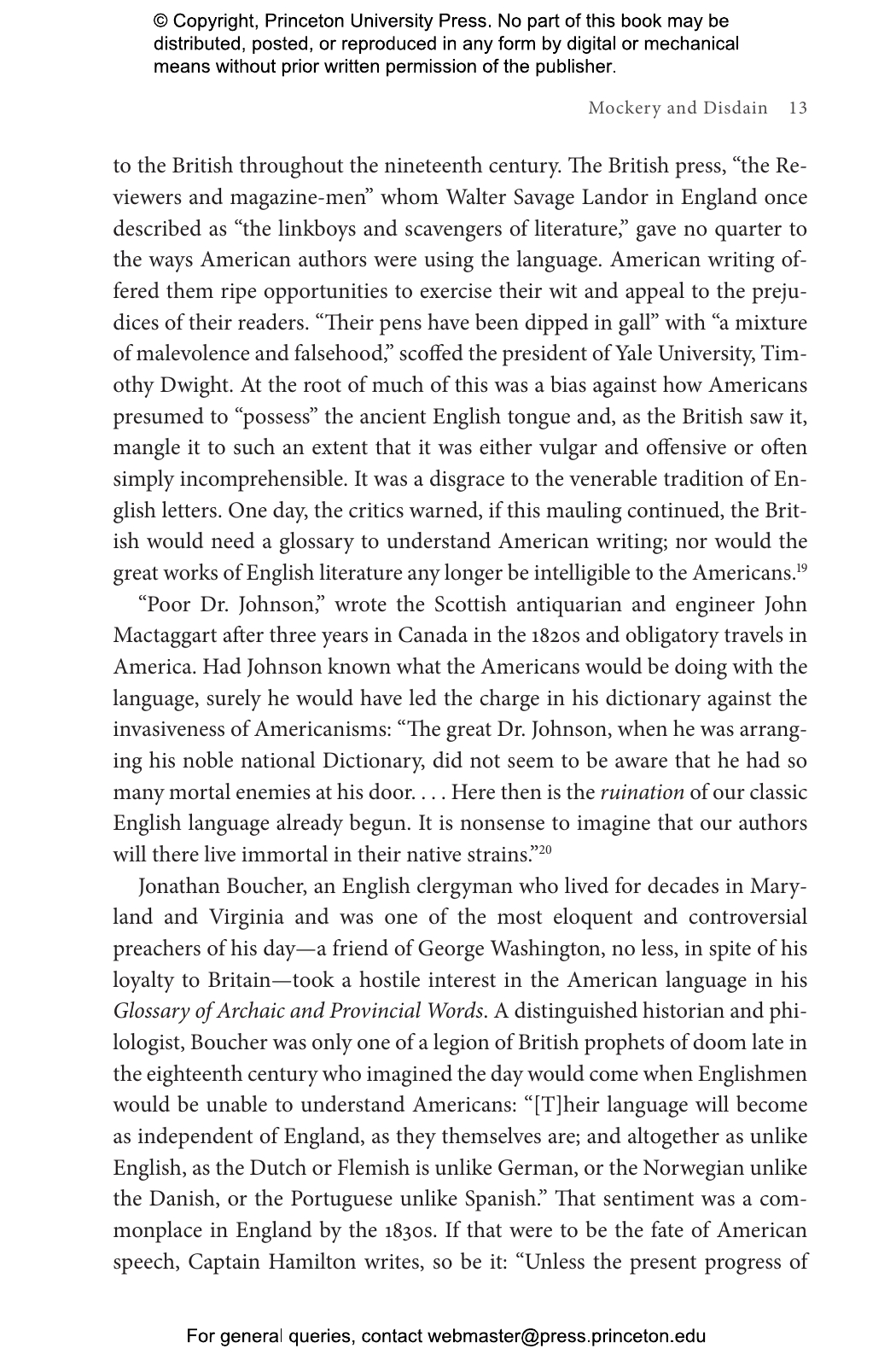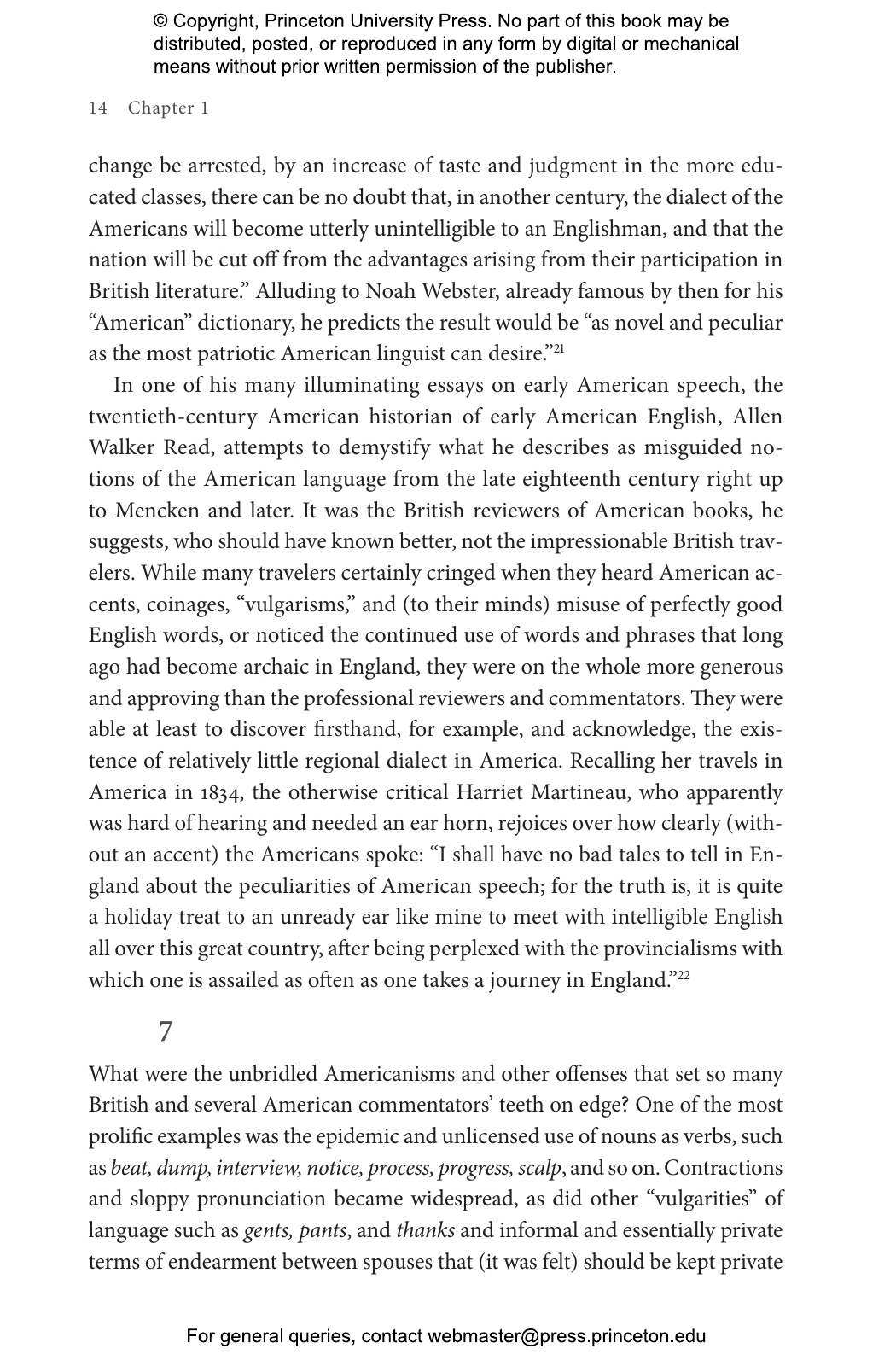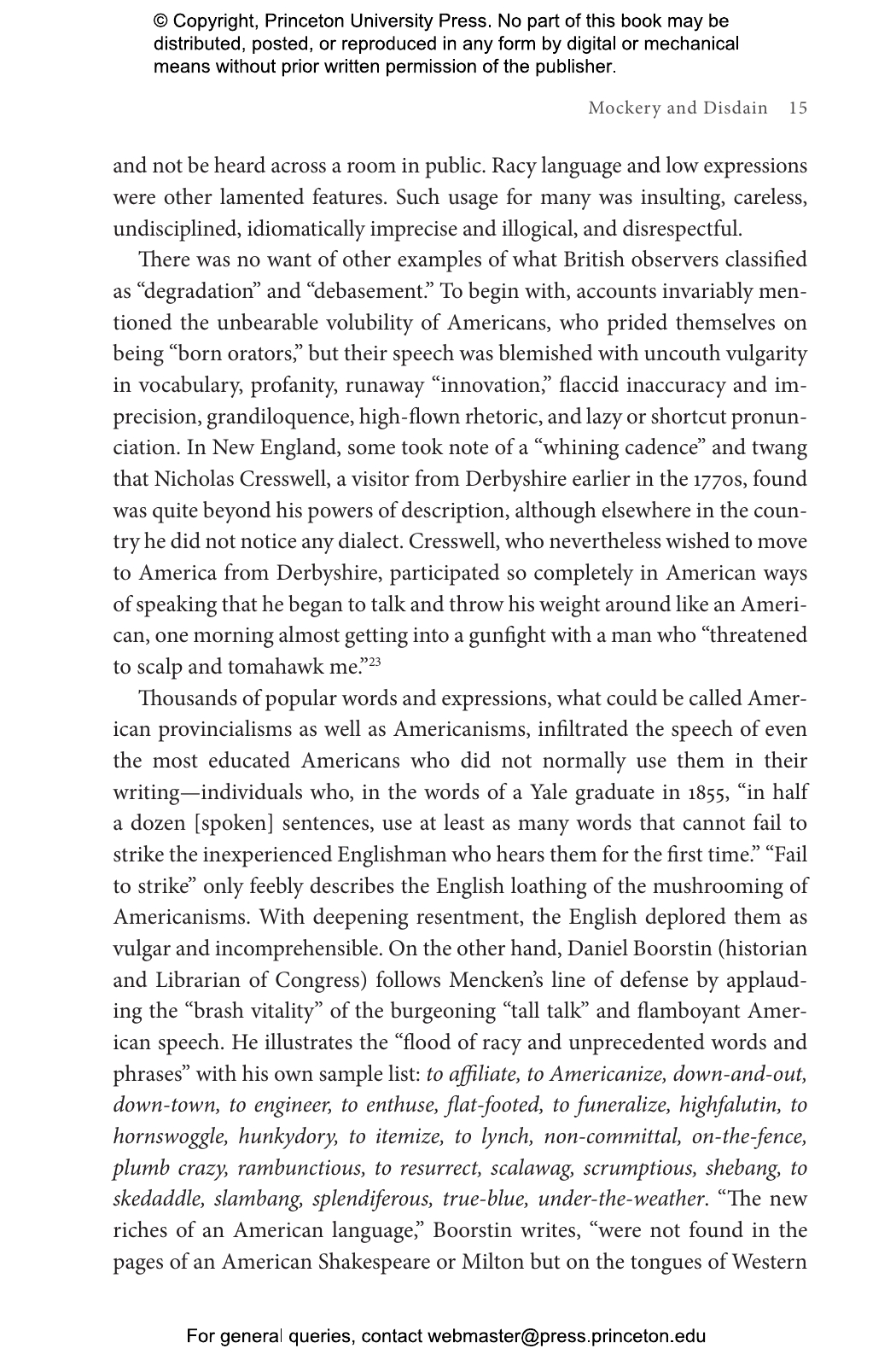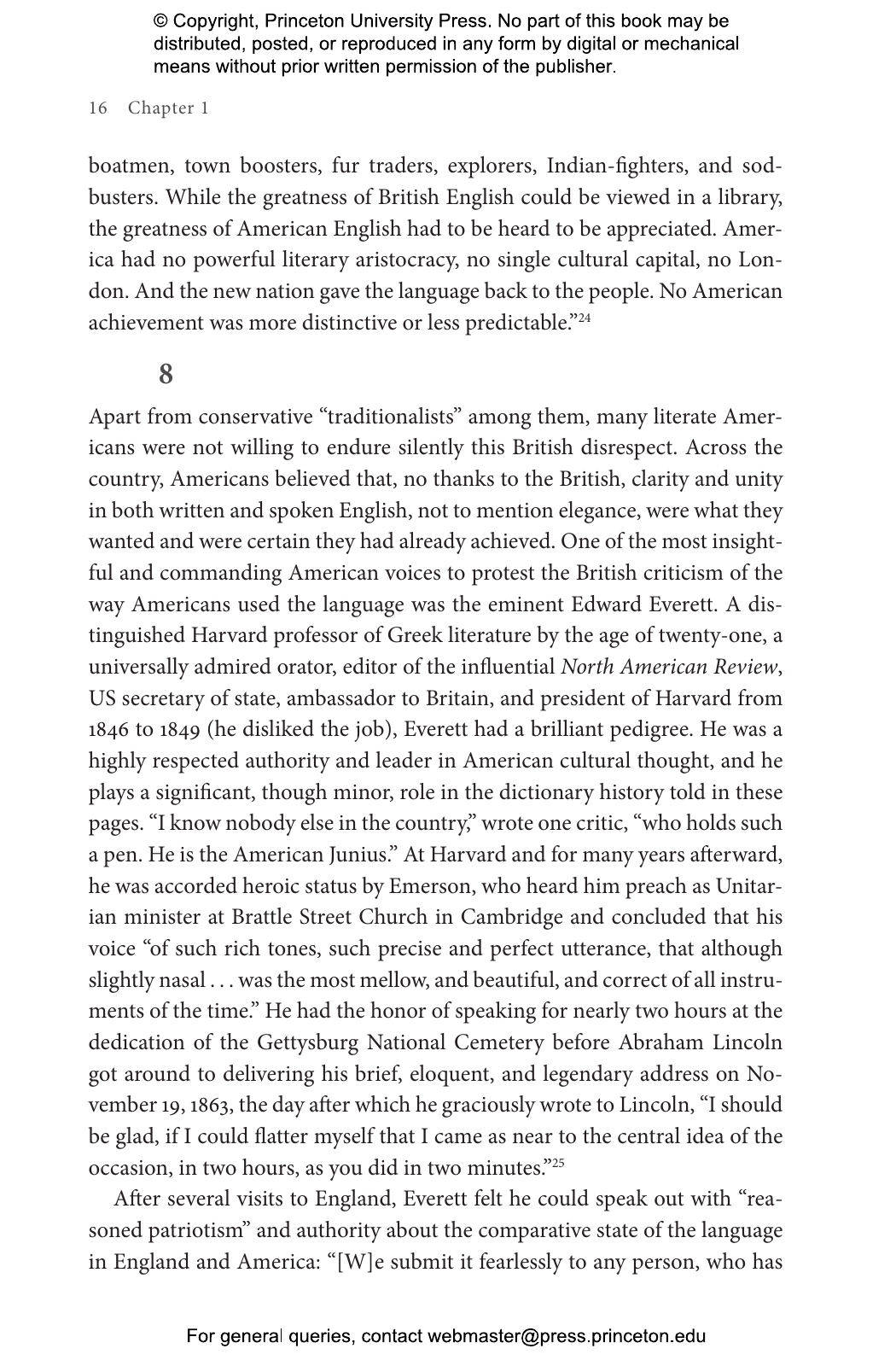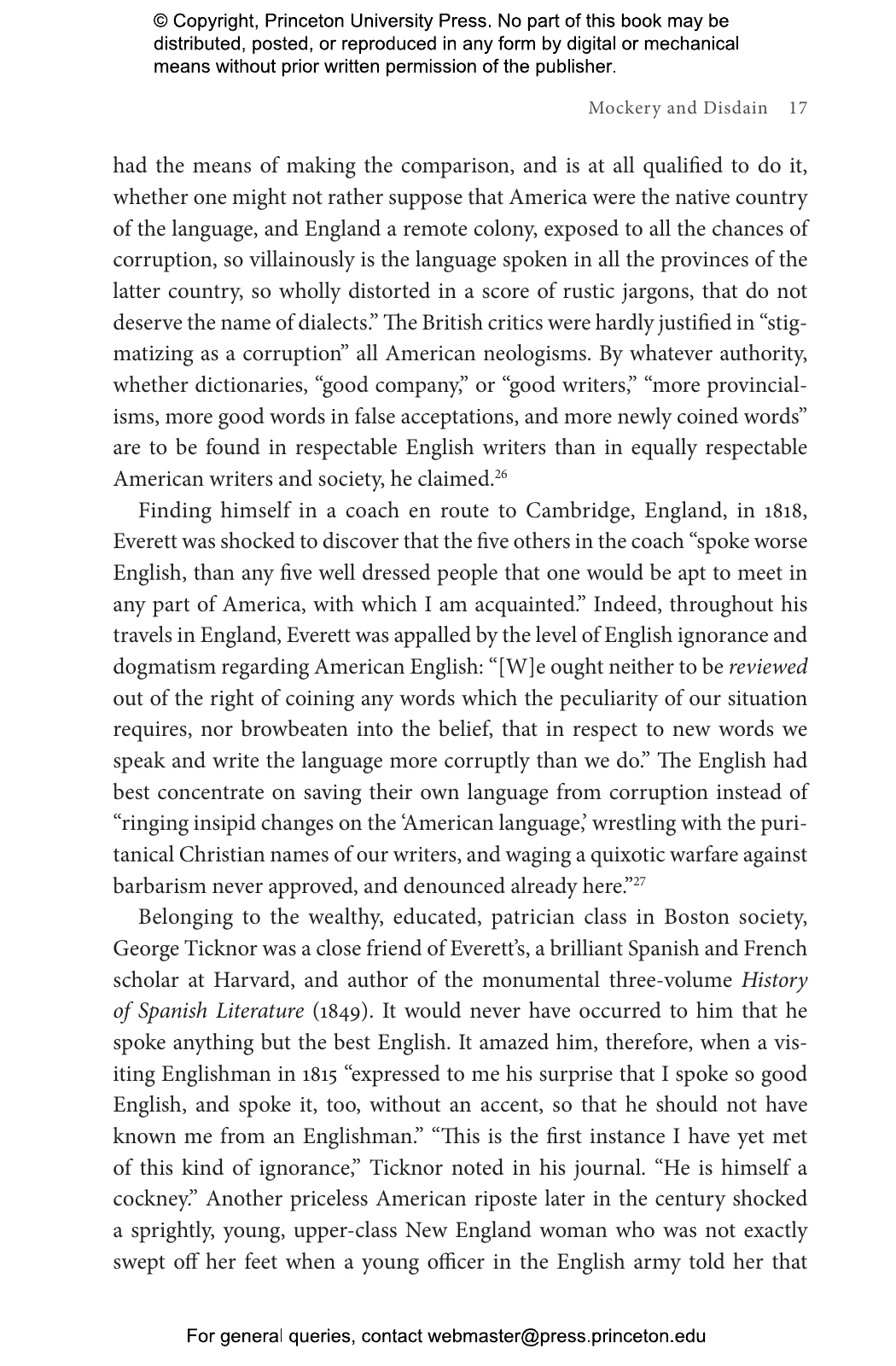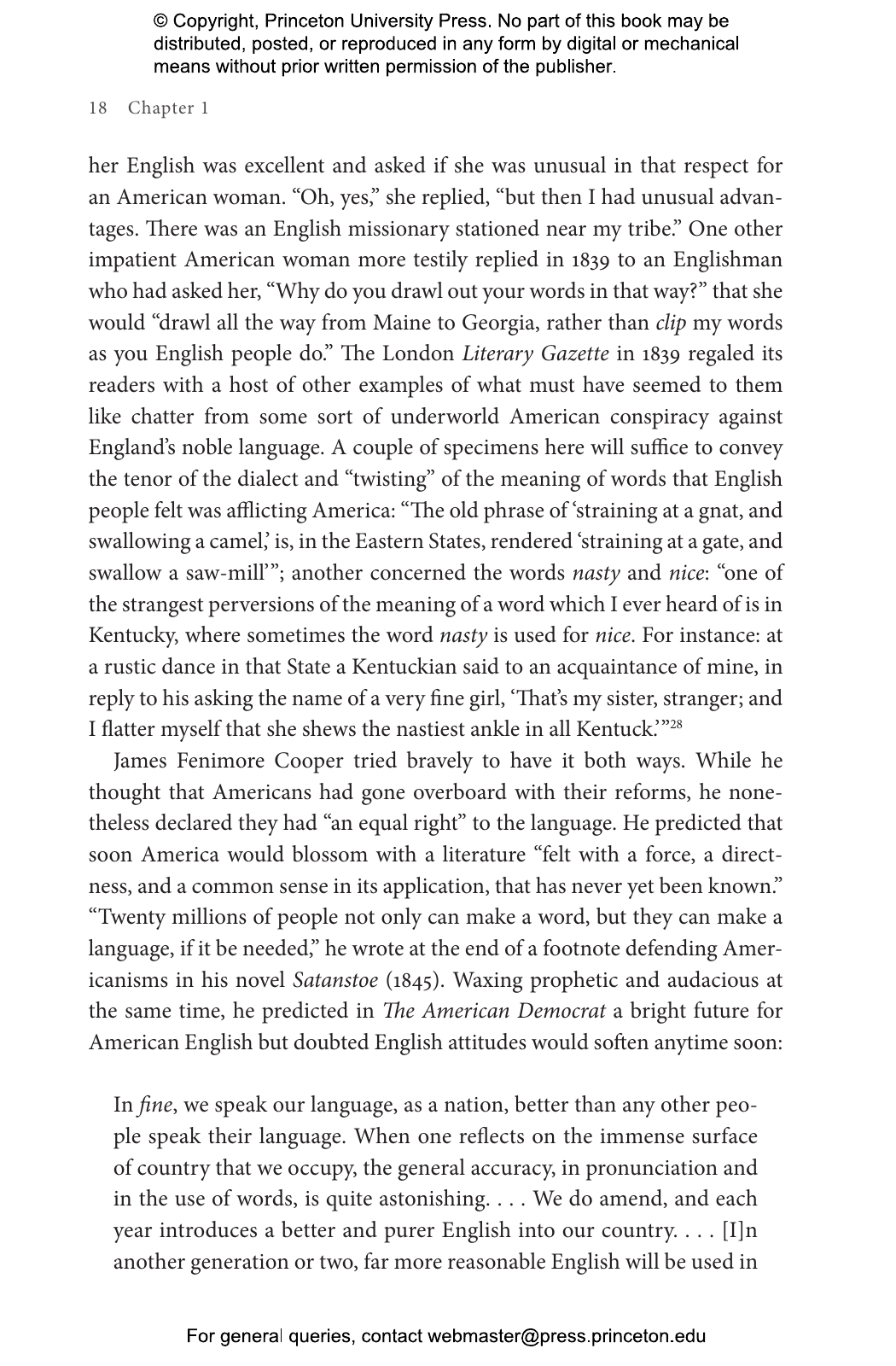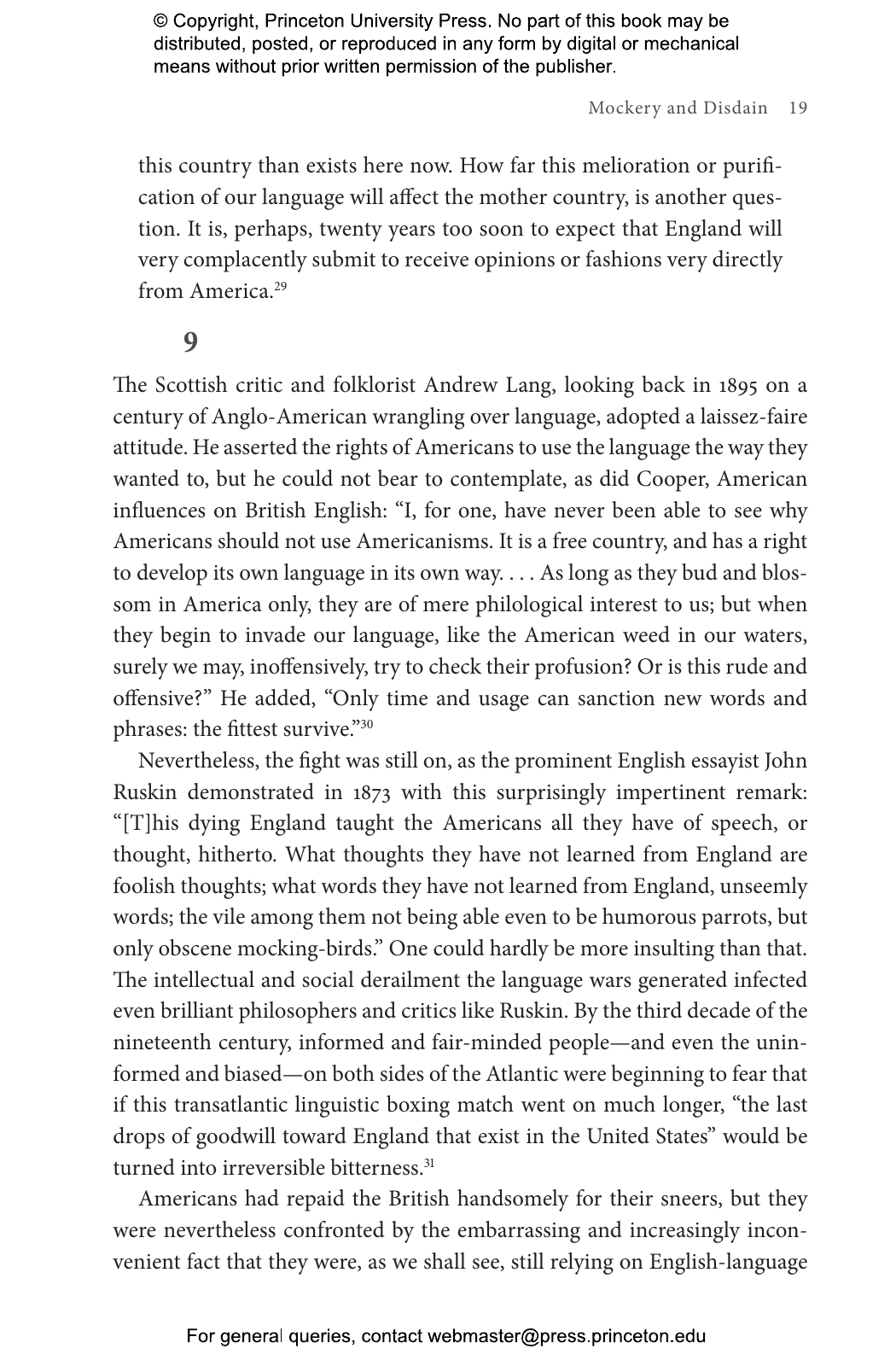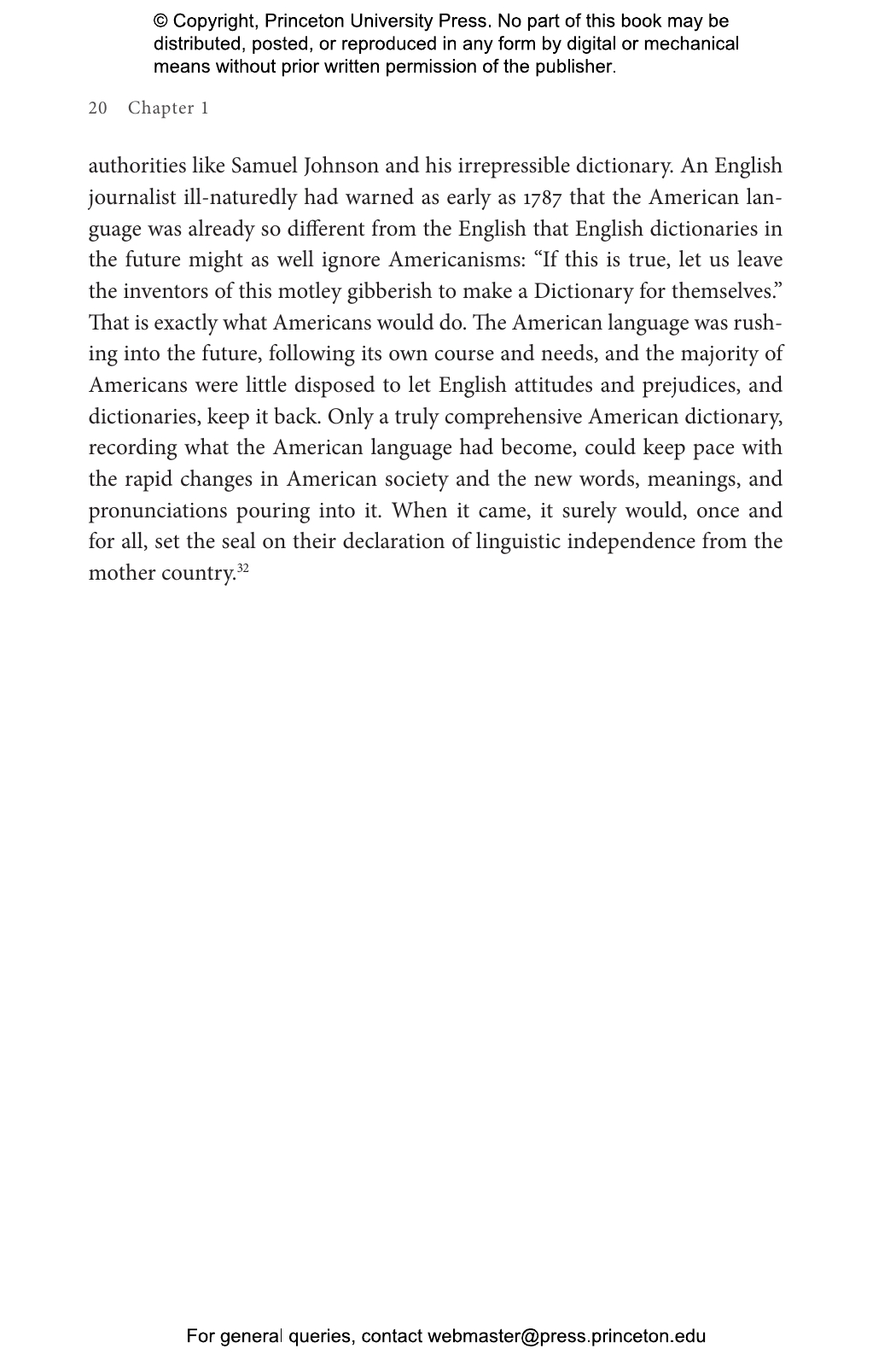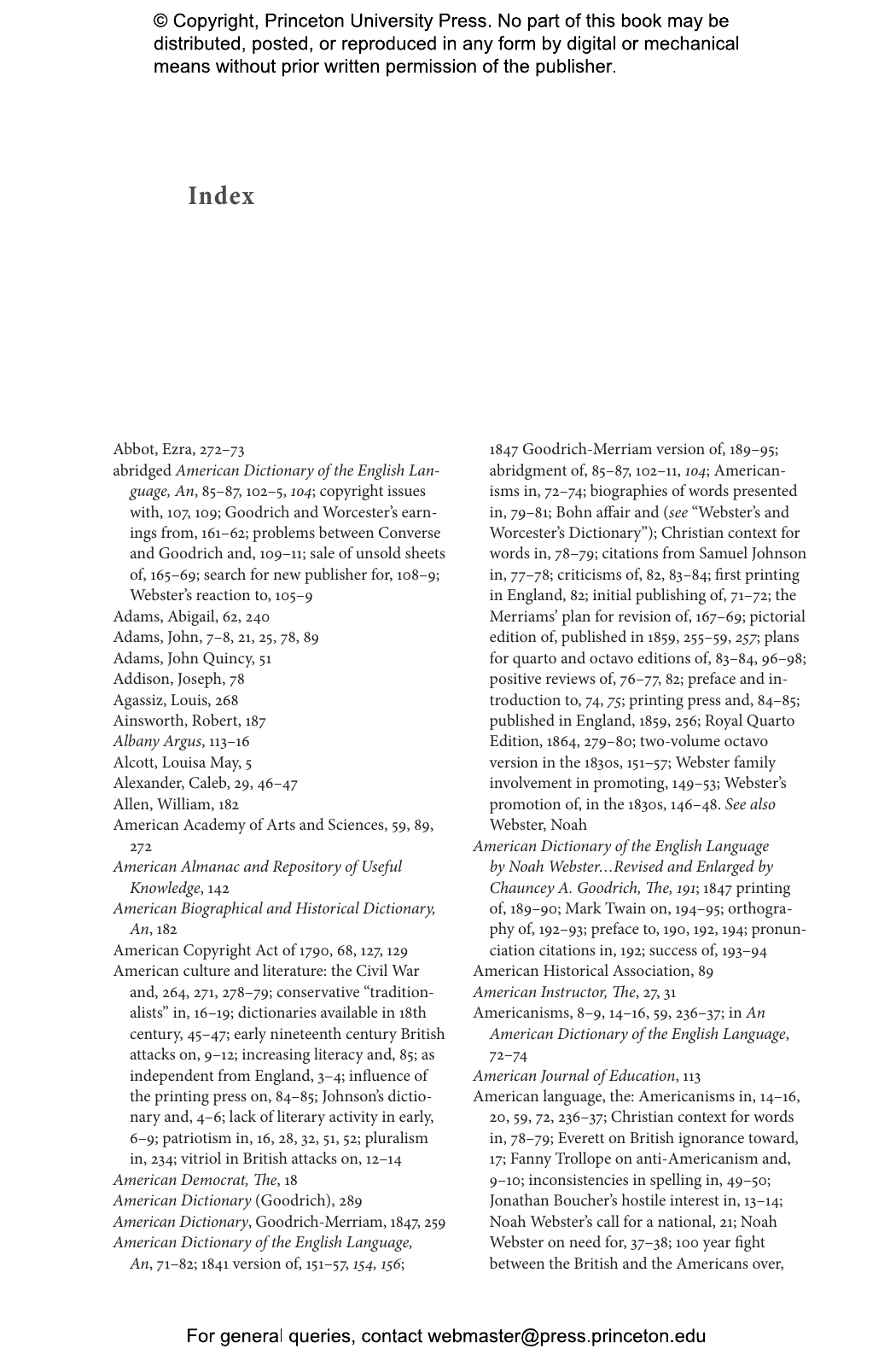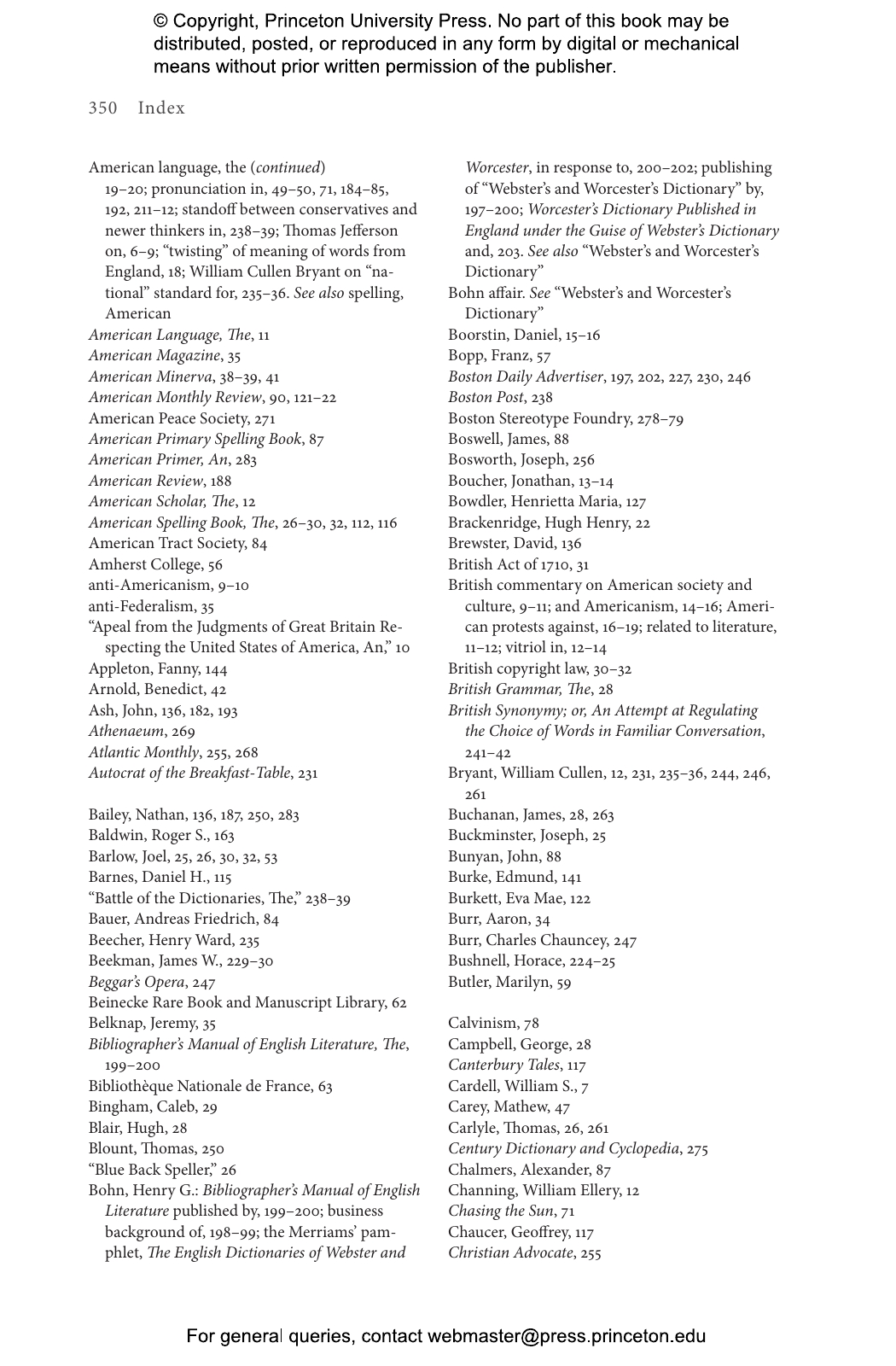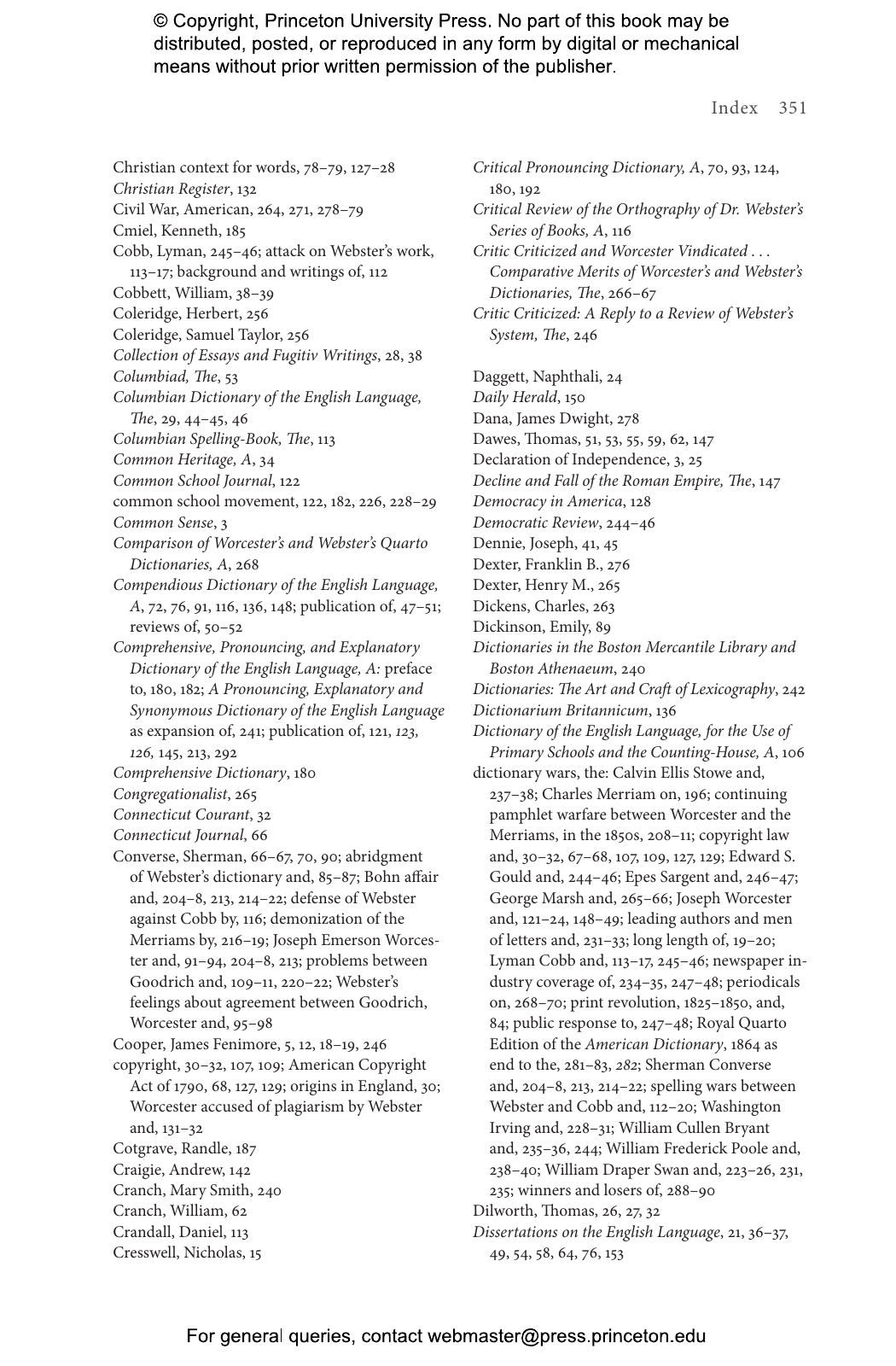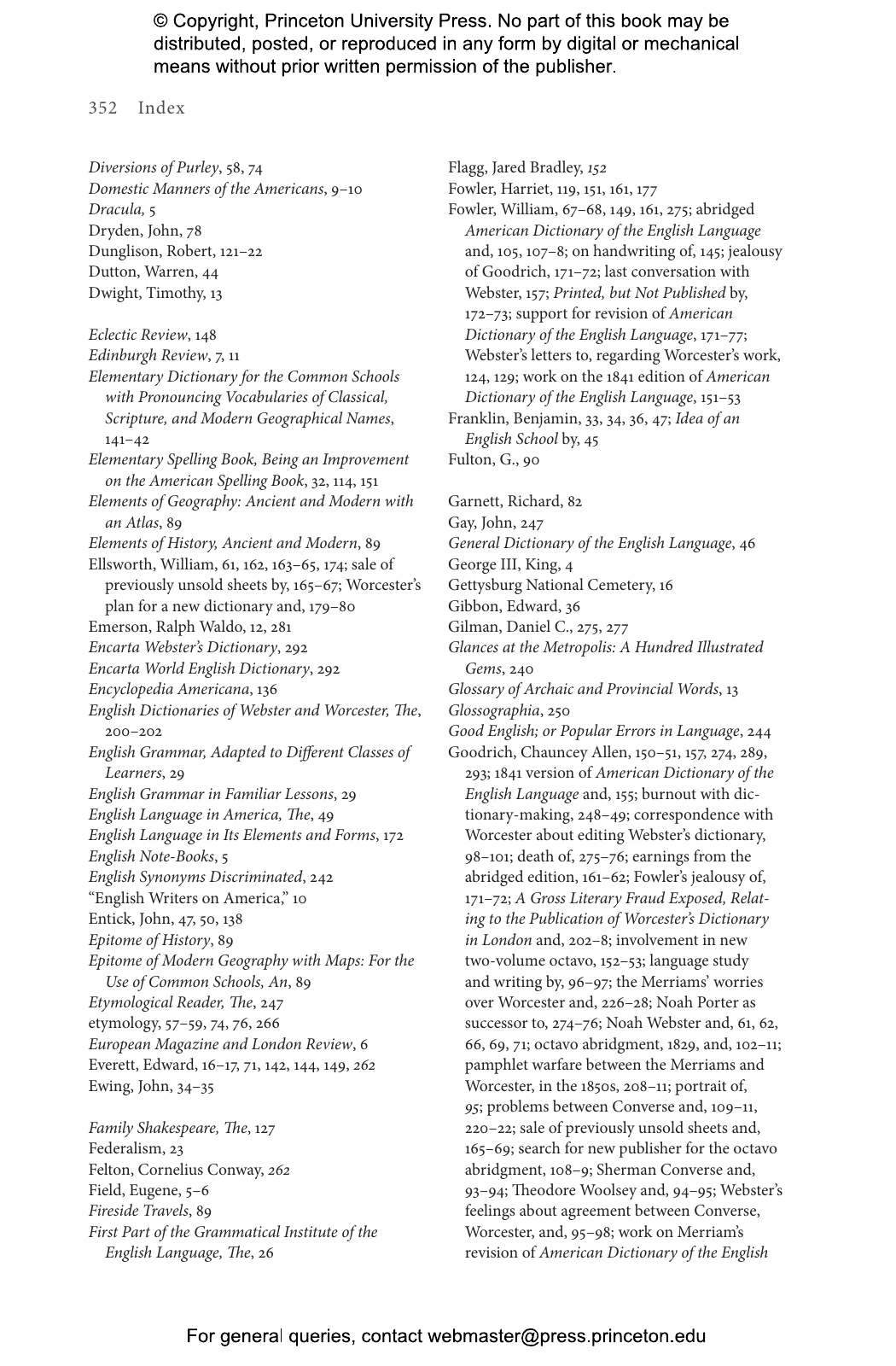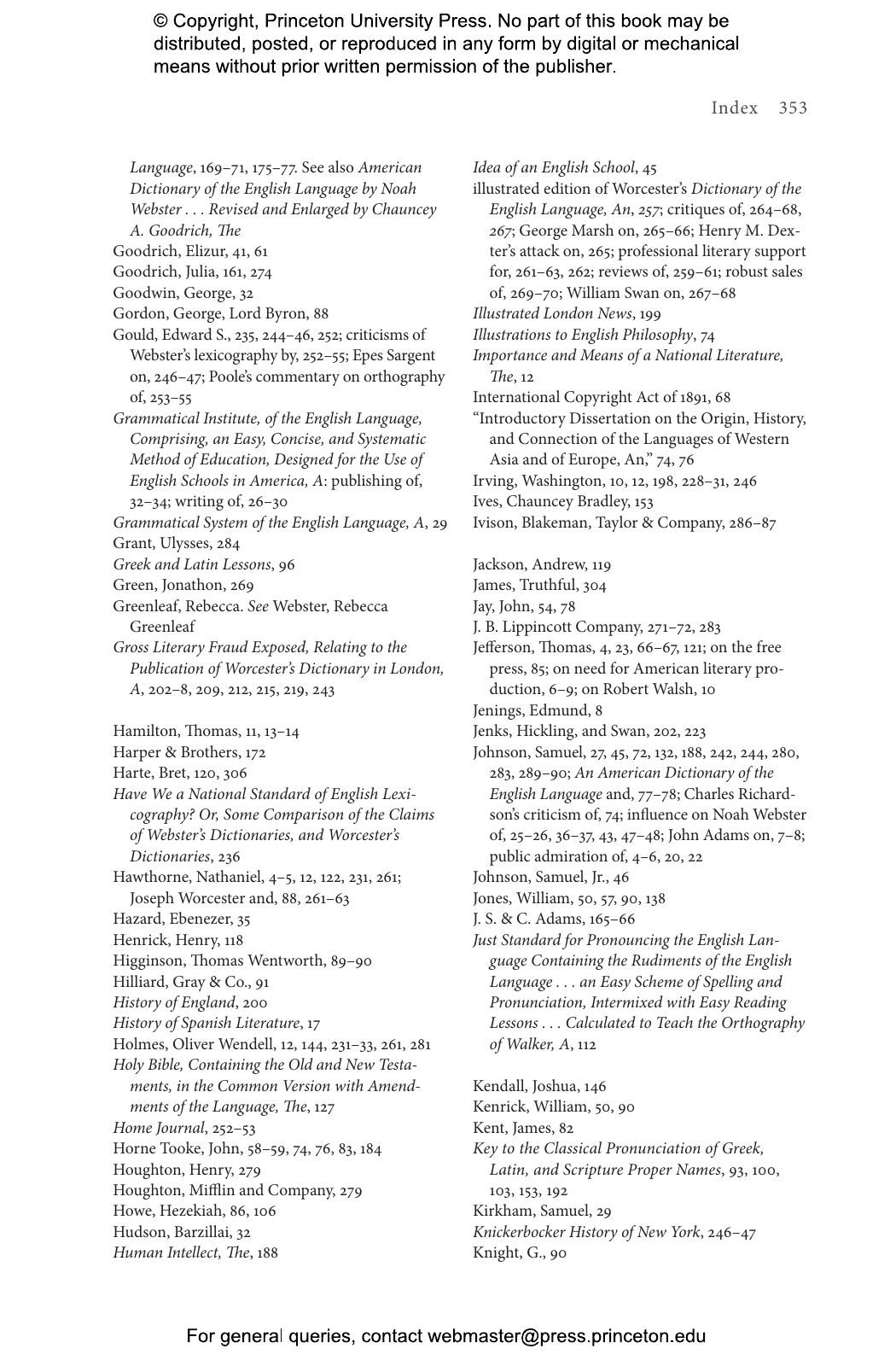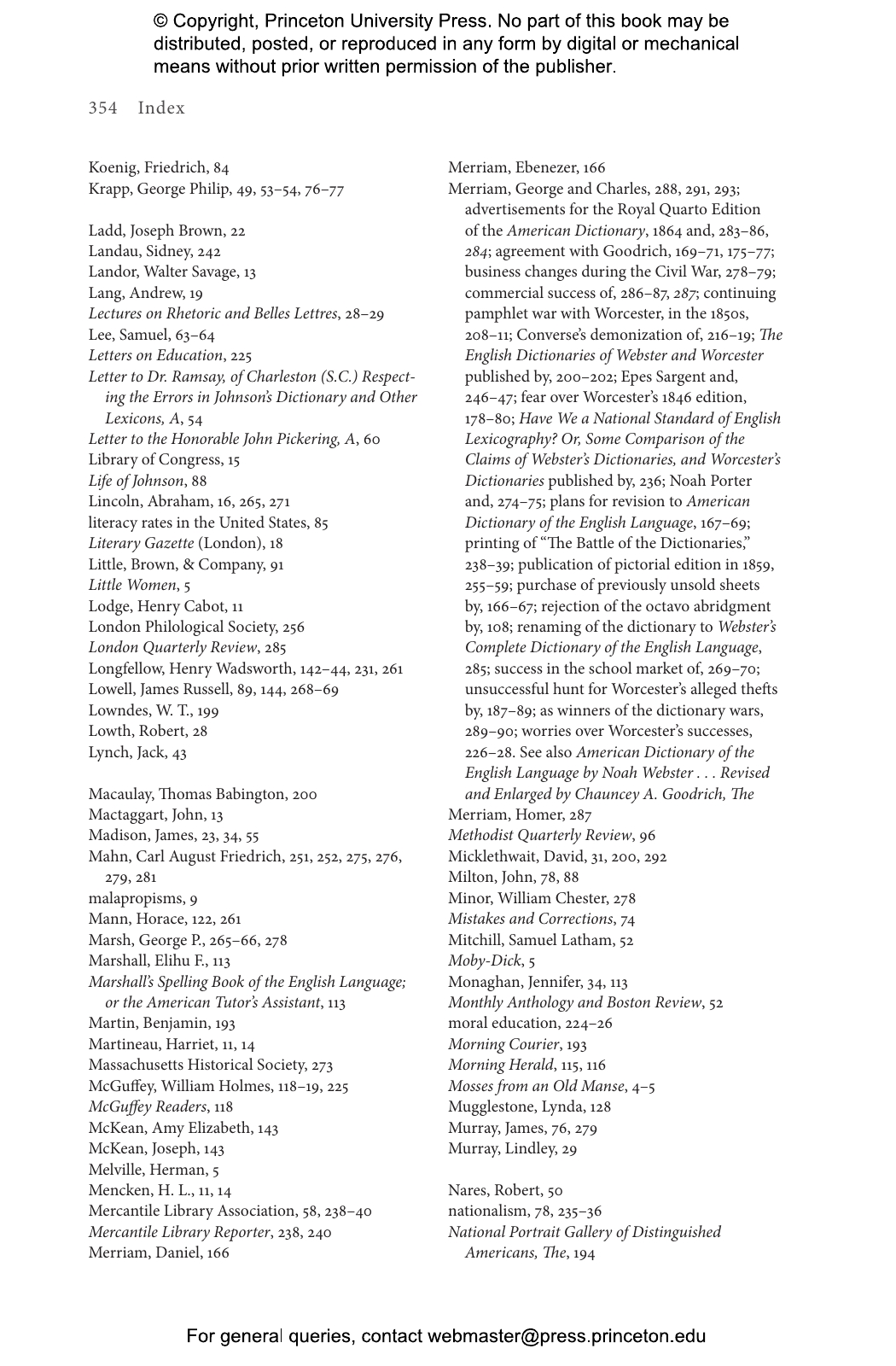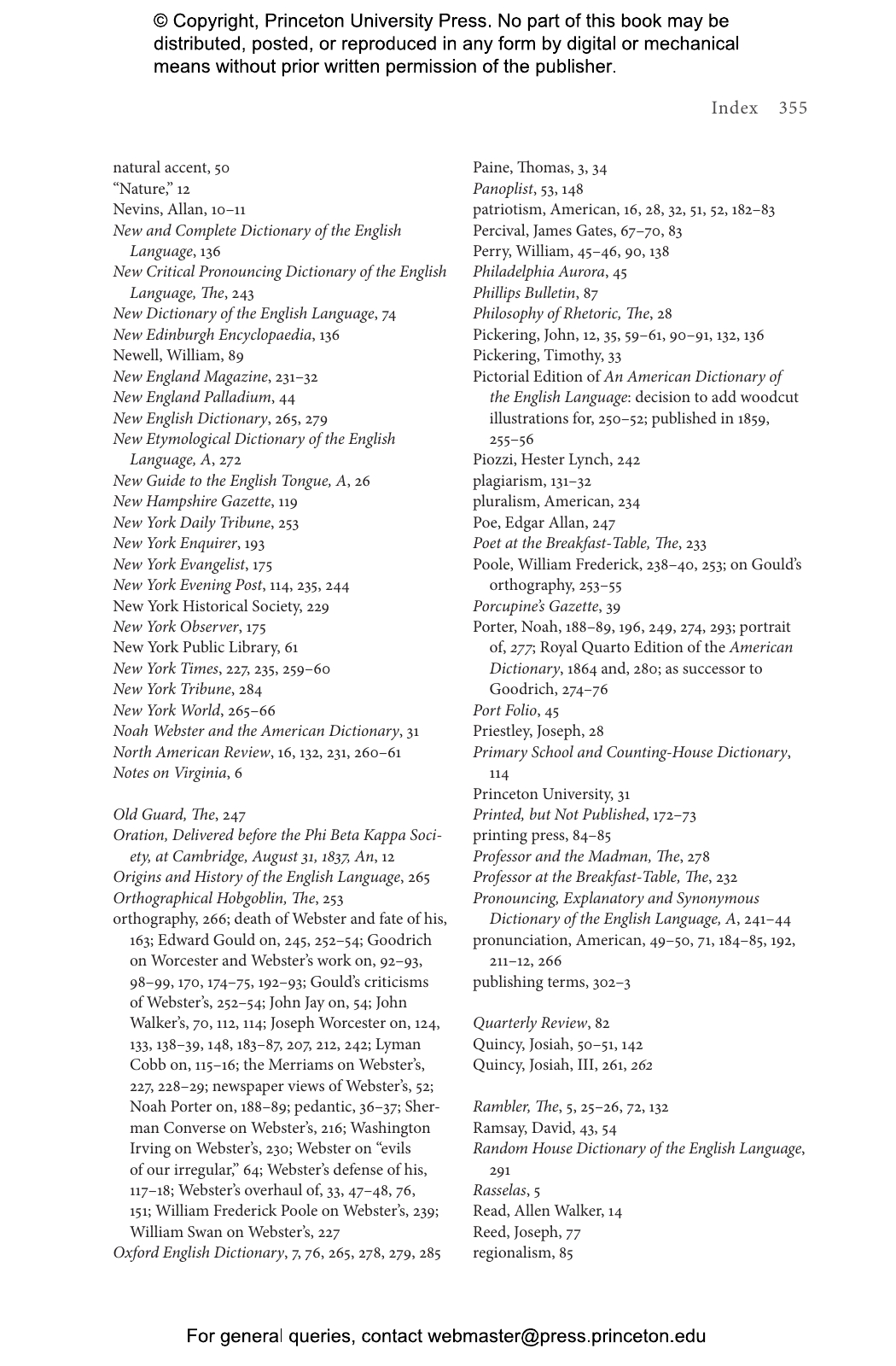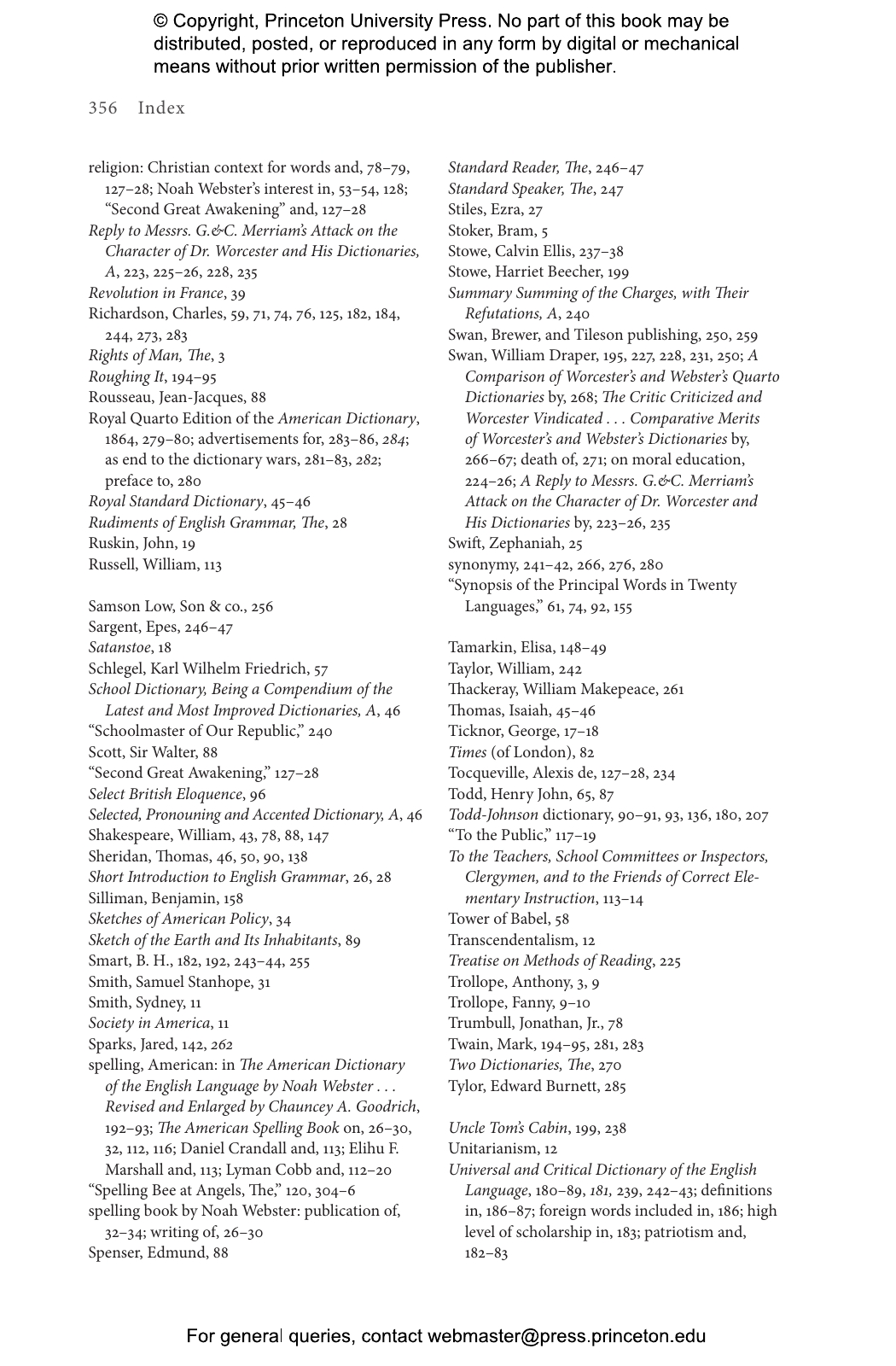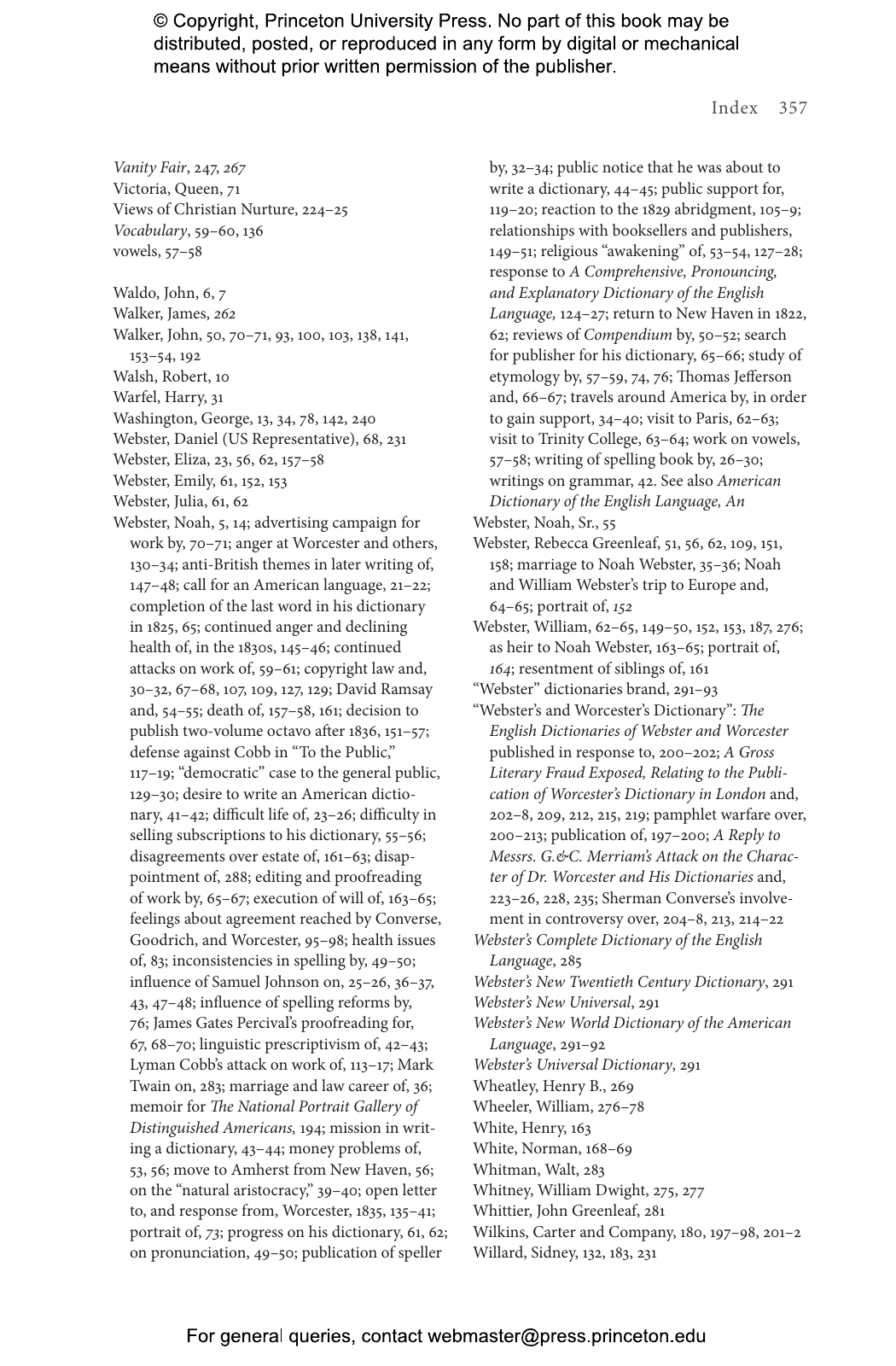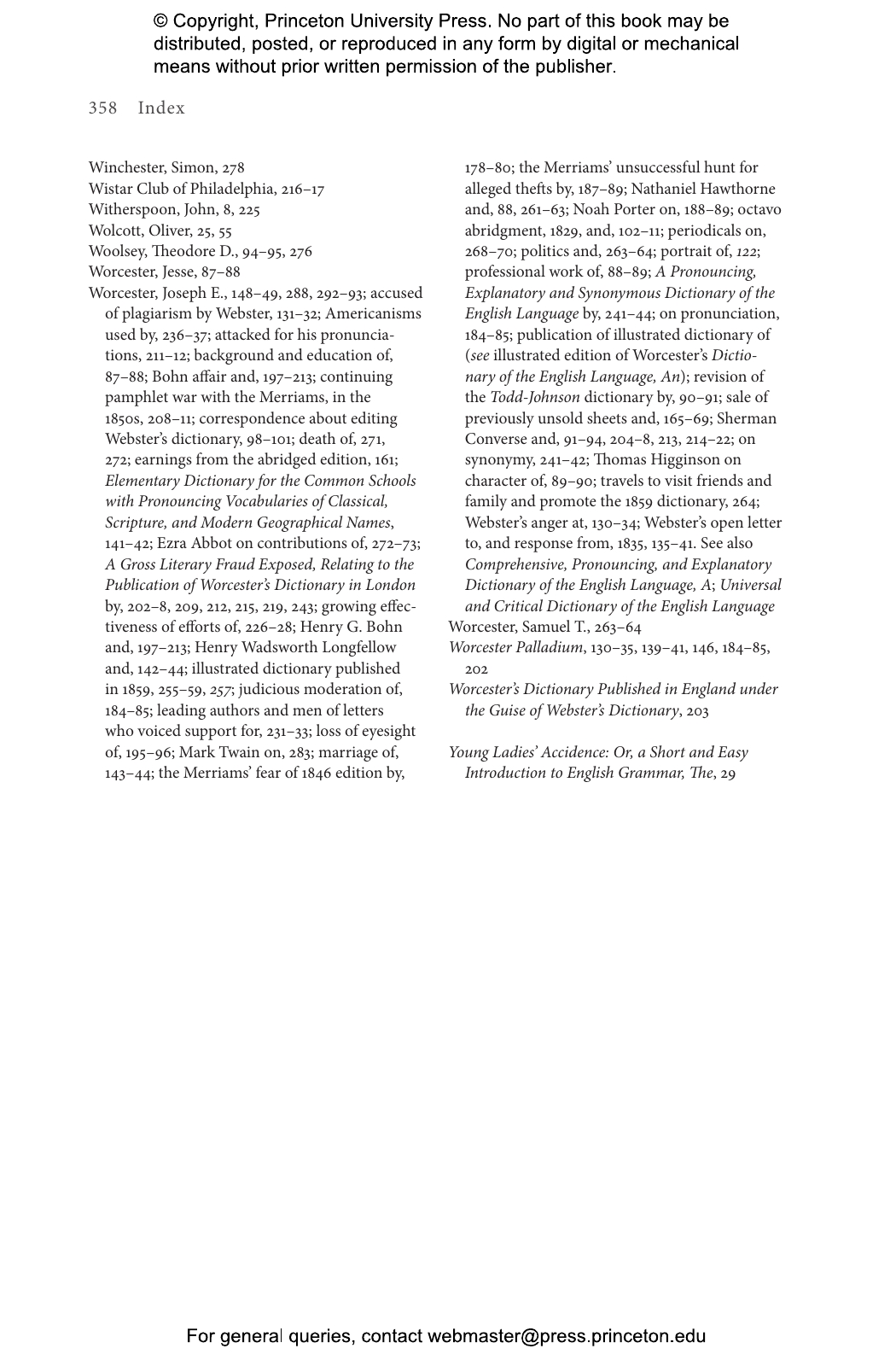In The Dictionary Wars, Peter Martin recounts the patriotic fervor in the early American republic to produce a definitive national dictionary that would rival Samuel Johnson’s 1755 Dictionary of the English Language. But what began as a cultural war of independence from Britain devolved into a battle among lexicographers, authors, scholars, and publishers, all vying for dictionary supremacy and shattering forever the dream of a unified American language.
The overwhelming questions in the dictionary wars involved which and whose English was truly American and whether a dictionary of English should attempt to be American at all, independent from Britain. Martin tells the human story of the intense rivalry between America’s first lexicographers, Noah Webster and Joseph Emerson Worcester, who fought over who could best represent the soul and identity of American culture. Webster believed an American dictionary, like the American language, ought to be informed by the nation’s republican principles, but Worcester thought that such language reforms were reckless and went too far. Their conflict continued beyond Webster’s death, when the ambitious Merriam brothers acquired publishing rights to Webster’s American Dictionary and launched their own language wars. From the beginning of the nineteenth century to the end of the Civil War, the dictionary wars also engaged America’s colleges, libraries, newspapers, religious groups, and state legislatures at a pivotal historical moment that coincided with rising literacy and the print revolution.
Delving into the personal stories and national debates that arose from the conflicts surrounding America’s first dictionaries, The Dictionary Wars examines the linguistic struggles that underpinned the founding and growth of a nation.
Awards and Recognition
- A Choice Outstanding Academic Title of the Year
"[A] riveting history. . . . The author navigates a complex story, bringing to life the passions and ideologies that shaped the early American lexicon."—New Yorker
"Wonderfully told. . . . For a tale of lexicographic intrigue, Mr. Martin’s book is unexcelled."—Bryan A. Garner, Wall Street Journal
"Engaging and informative. . . . The Dictionary Wars . . . forays into copyright law, educational policy, religious revivalism, and other pressures on the verbal life of the nation."—Christopher Benfey, New York Review of Books
"Martin is a steady and thorough guide to what he calls the ‘endless labyrinths of lexicography’, and in Dictionary Wars he succeeds in dramatising what could have been mere bibliography."—Max Norman, Literary Review
"An informative and often pleasantly surprising cultural history."—Kirkus
"With an impressive breadth of research, The Dictionary Wars invites contemplation of the ways in which language itself can affect the soul of a nation."—Meagan Logsdon, Foreword Reviews
"Reanimates a 19th-century ‘civil war over words’ that shaped how Americans speak and write. . . . Anyone who loves words for their own sake will be entertained."—Publishers Weekly
"What [The Dictionary Wars] does best is to demonstrate that while characters win or lose, the very viciousness of the fight ended up benefiting the whole language and all of us who use it. For those of us nerdy and wordy enough to love the language as well as use it, this is profound."—Nicholas Clairmont, Washington Examiner
"Martin’s account of the dictionary feuds of the 19th century is as lively and entertaining as the battle itself."—Patricia T. O’Conner, New York Times
"Peter Martin’s The Dictionary Wars: The American Fight Over the English Language shows Noah Webster as every bit the sort of ideologue who is convinced he has a historical mission and carries himself accordingly."—Scott McLemee, Inside Higher Ed
"The Dictionary Wars is a fascinating unveiling of how American English became what it is today."—Desi News
"[The Dictionary Wars] celebrate[s] the development of literature and language that would give the United States of America its own cultural identity. [It] provide[s] a foundational context for the study of our literature and communication and help[s] us celebrate American culture."—Michel L. Ramsey, Roanoke Times
"Martin’s book includes a substantial amount of archival research which will undoubtedly be a boon to scholars of the dictionary wars."—Kory Stamper, Times Literary Supplement
"Martin gives a textured account of the personal, scholarly, and business conflicts that erupted with Webster’s first dictionary. . . . Folded into this tale are aspects of print capitalism, material culture, and business history."—Matthew Garrett, ALH Online Review
"As well as providing an unparalleled account of the making of American English and the ineffable Anglo-American connection, Martin’s study is an invaluable contribution to the field. It is a prolific reference work of commendable scholarship drawing on laborious documentation, consistent, informative, and copious in exemplification, one that reads like a passionate saga and an academic resource at one and the same time."—Adriana Neagu, American, British and Canadian Studies
“The level of specific, thorough attention given to a particular period of U.S. lexicography sets The Dictionary Wars apart from other lexicographical histories. It tells a great, human story.”—Lynne Murphy, author of The Prodigal Tongue: The Love-Hate Relationship between American and British English
"Peter Martin’s highly readable work untangles the surprising plot twists that have resulted in Americans’ popular acceptance of the name Webster as being synonymous with dictionary. The tale is far more dramatic and surprising than many might imagine and this lively account sets the record straight."—Orin Hargraves, past president of the Dictionary Society of North America
